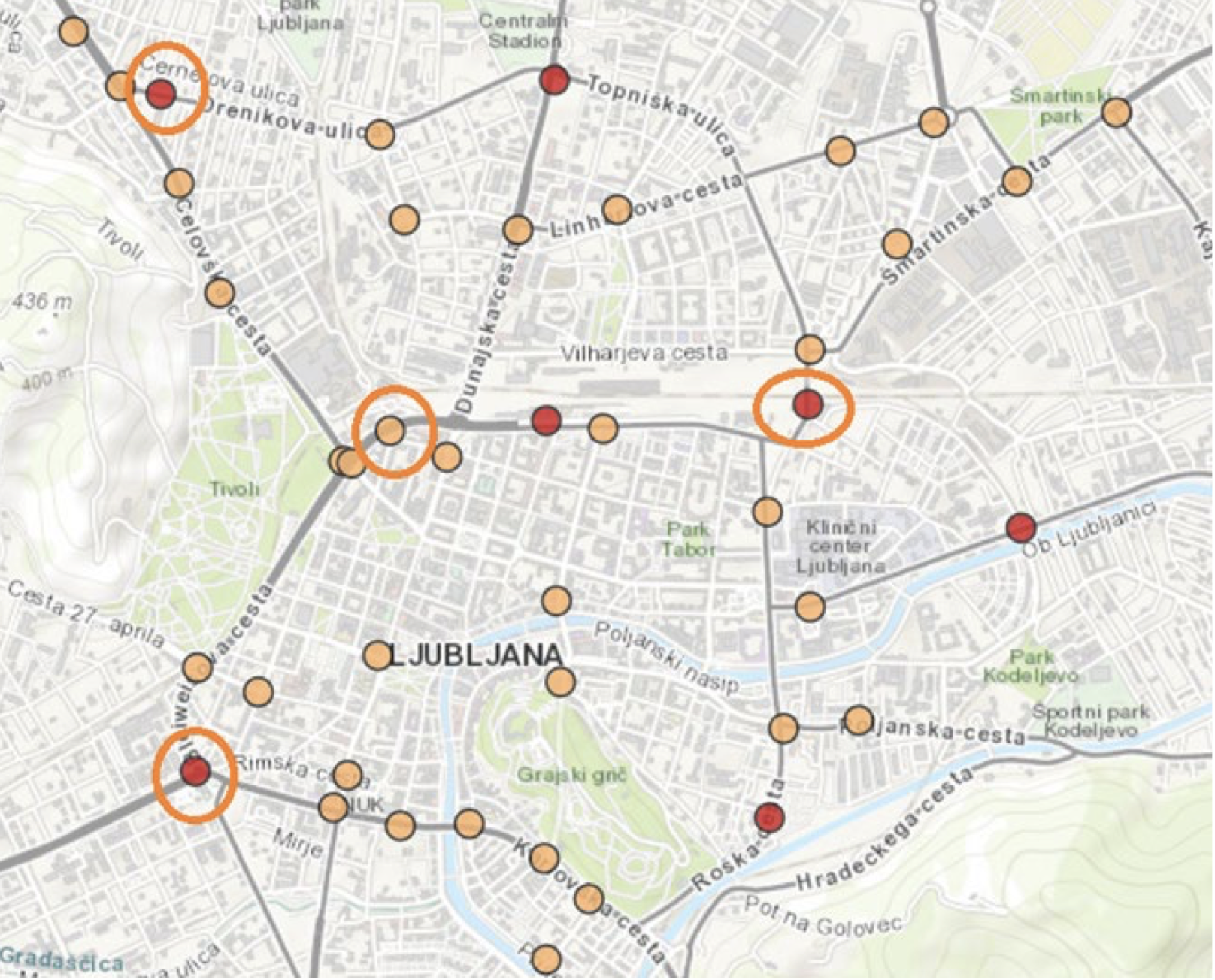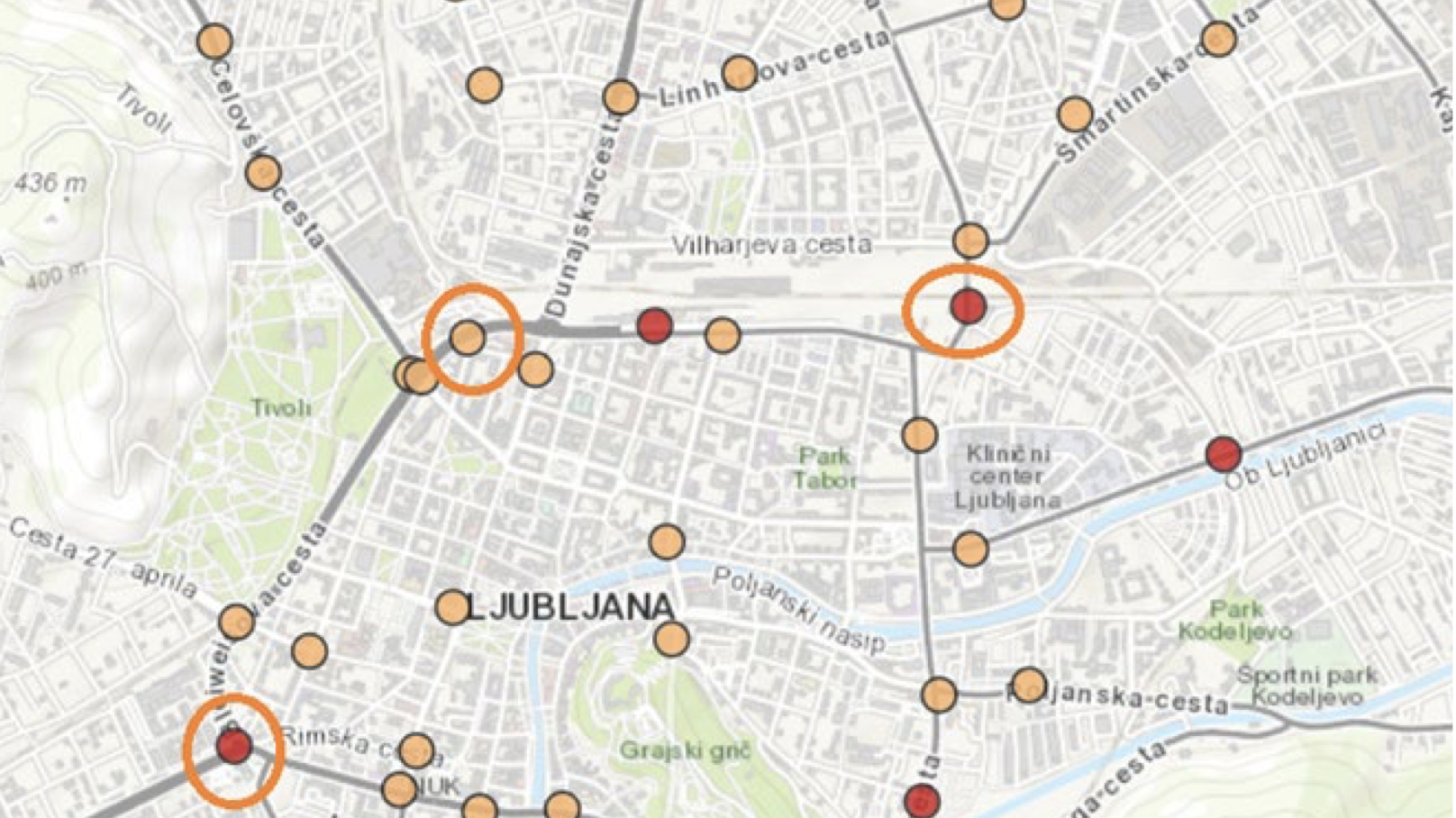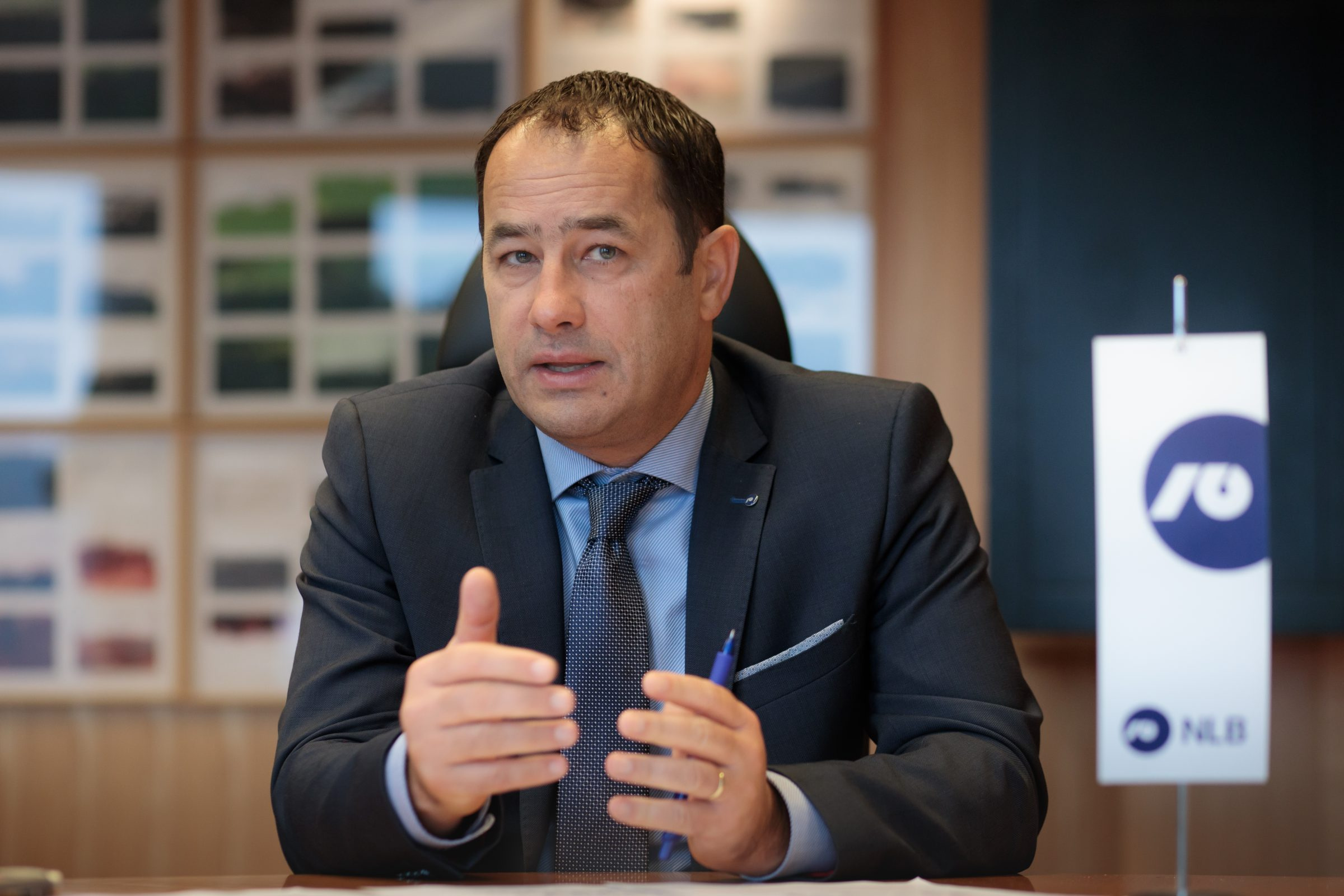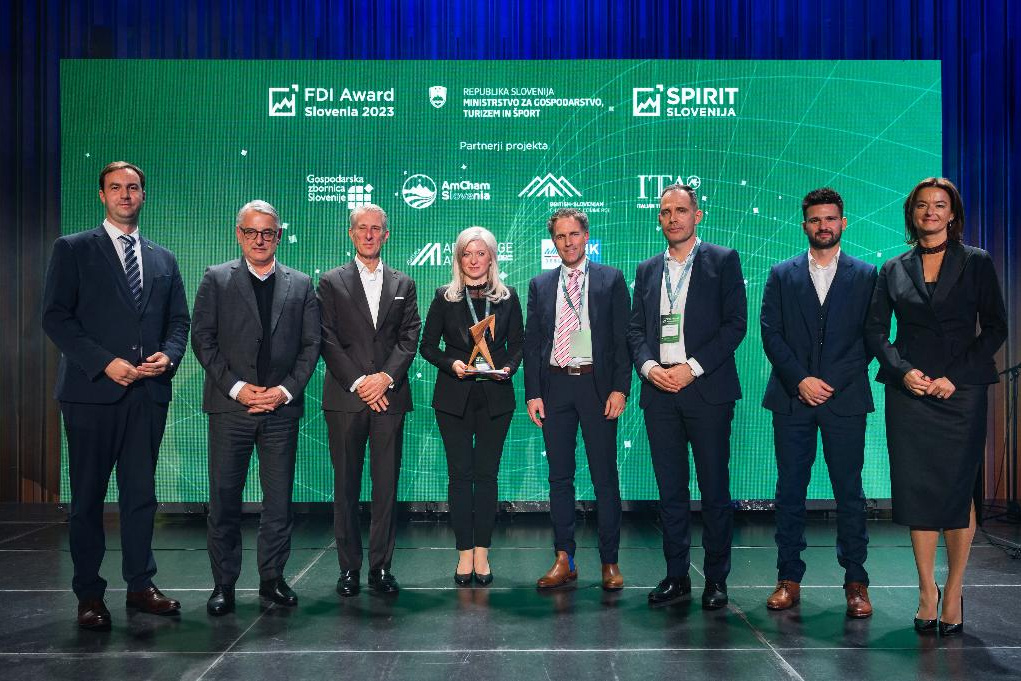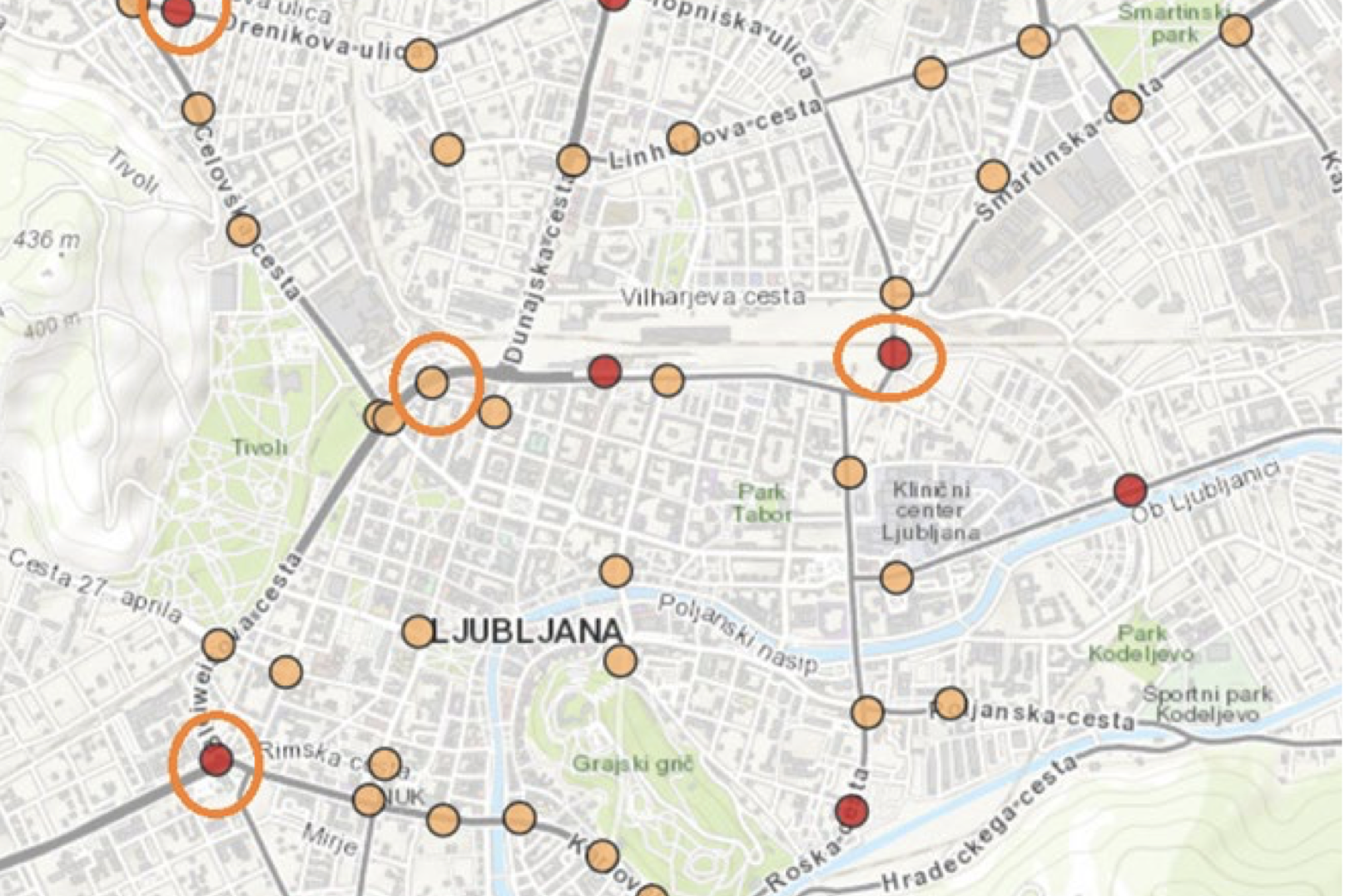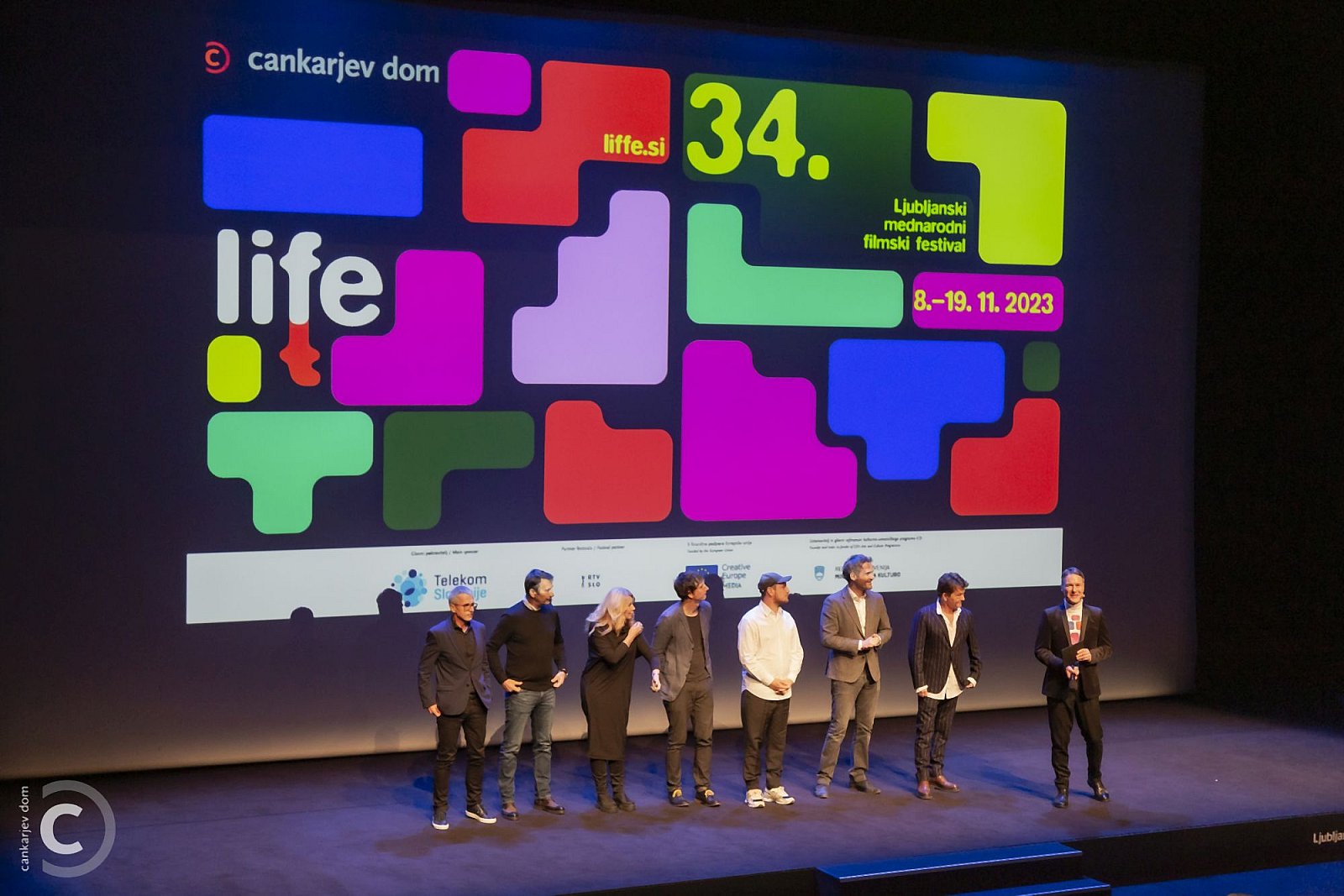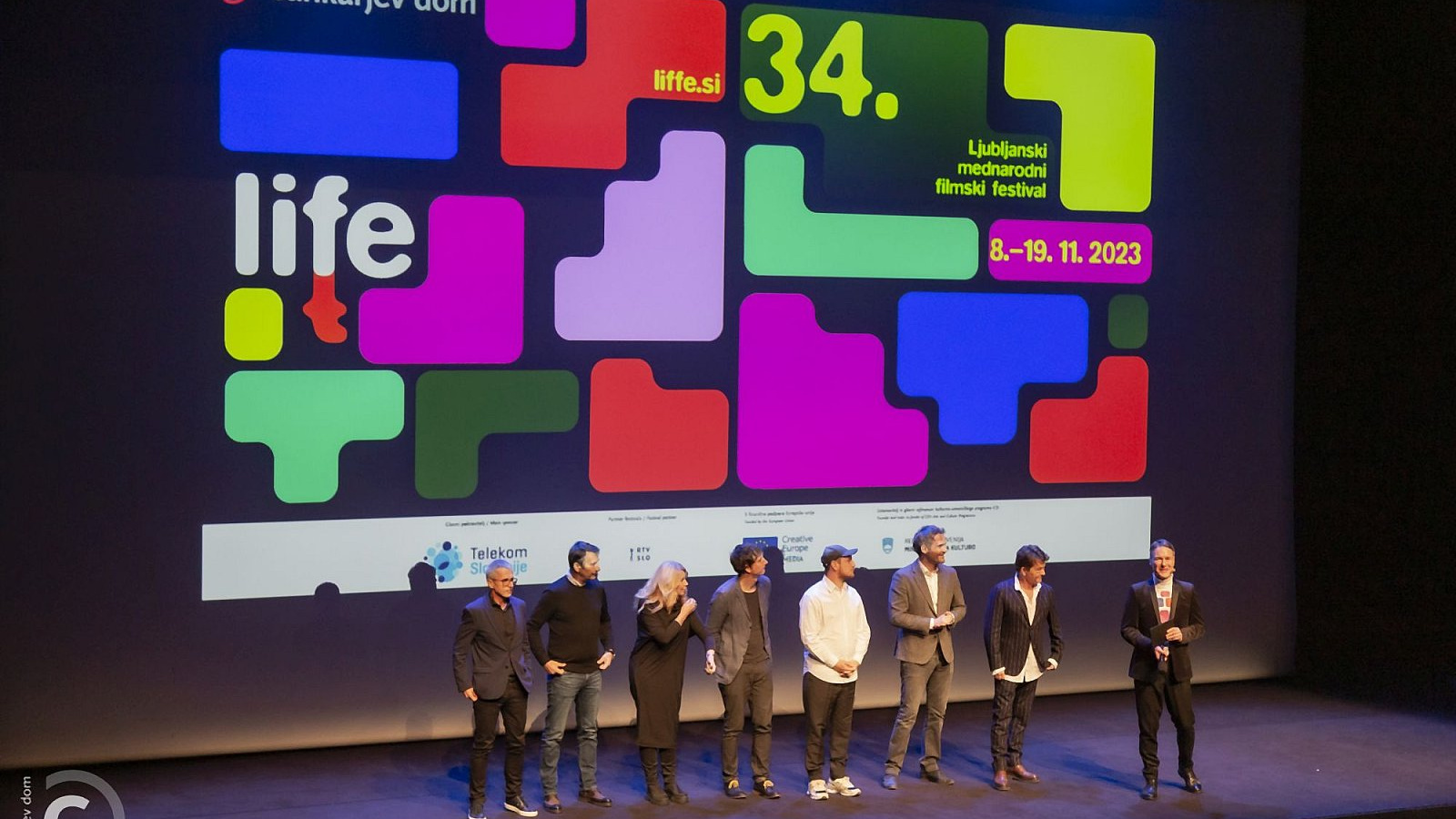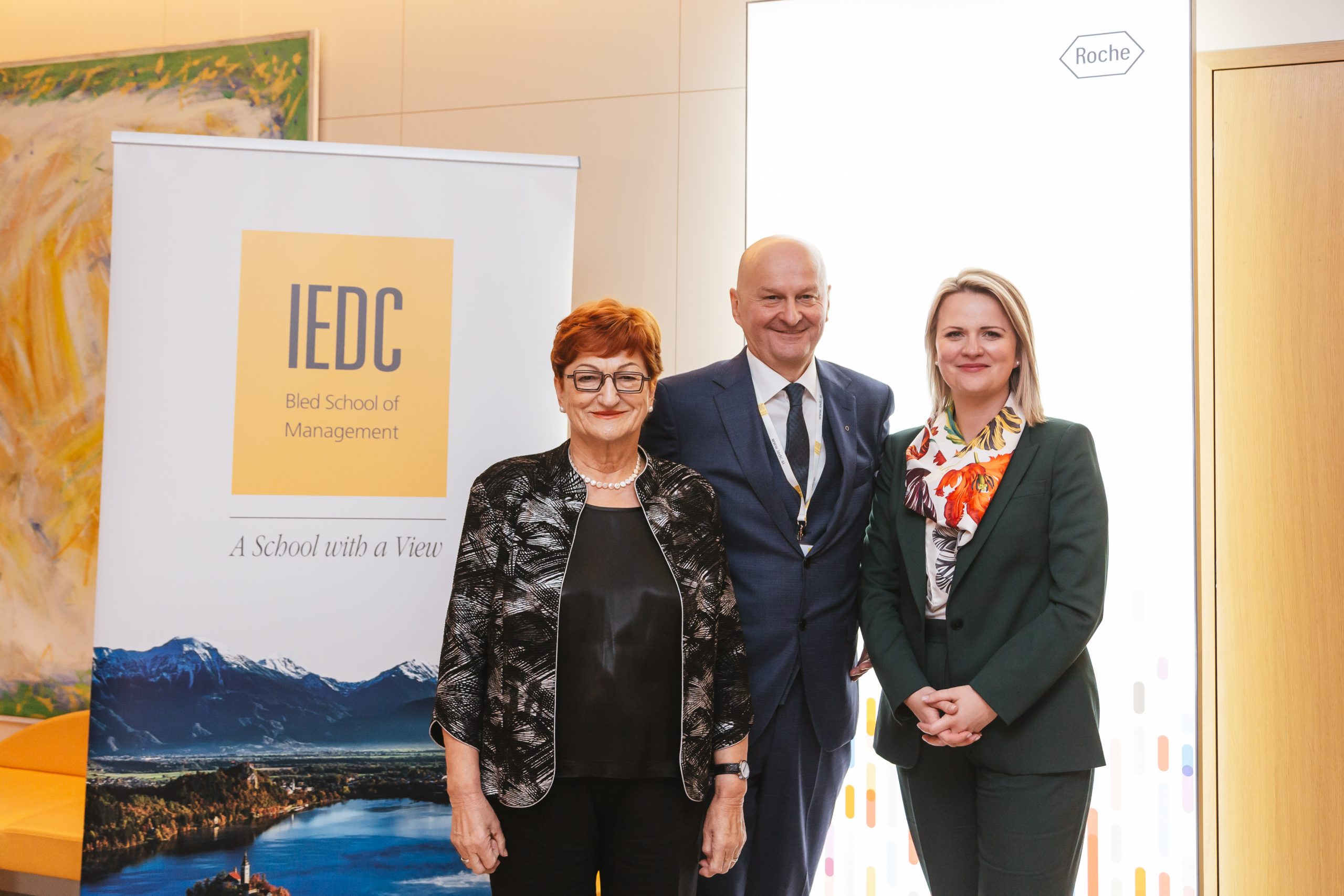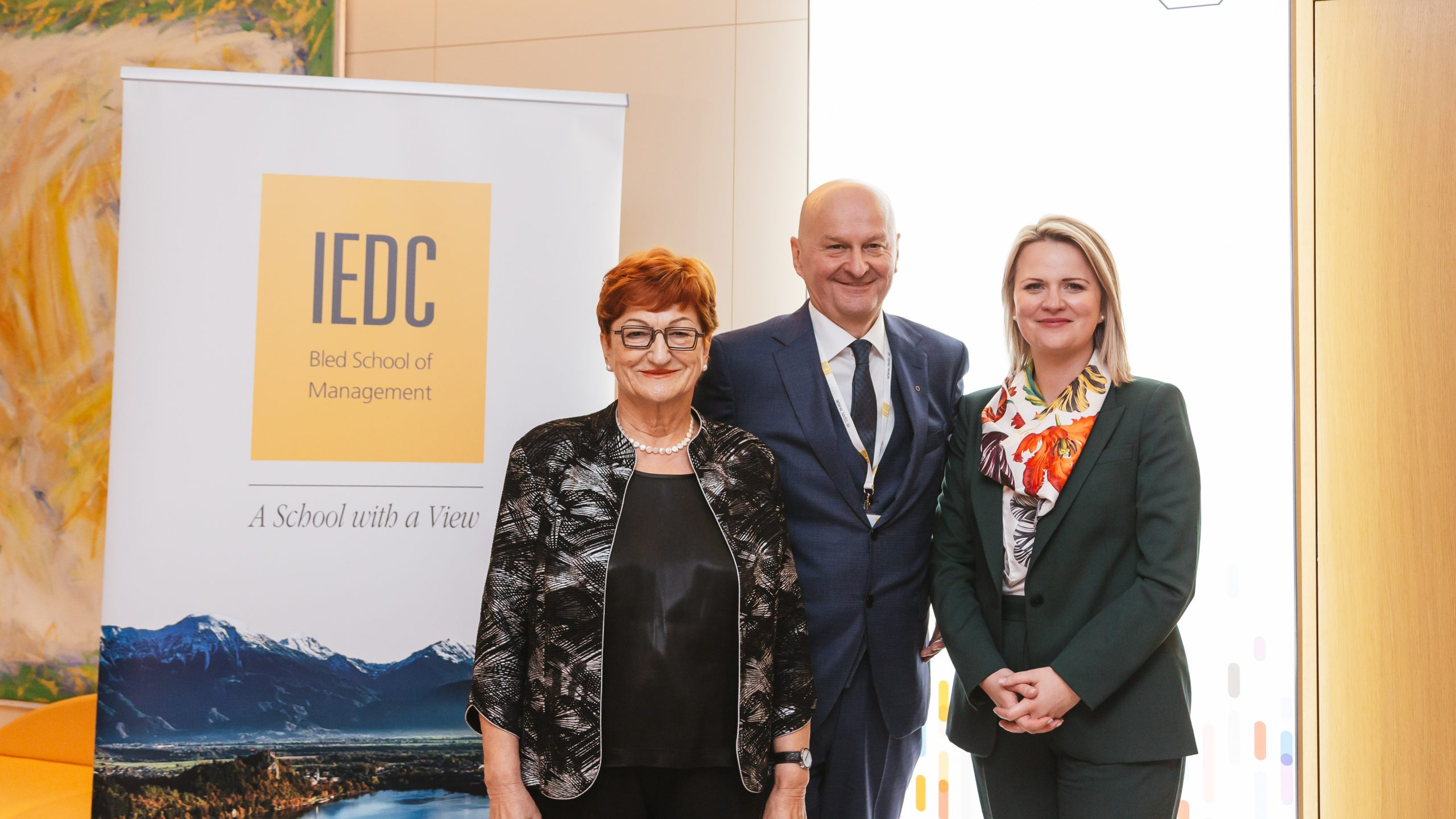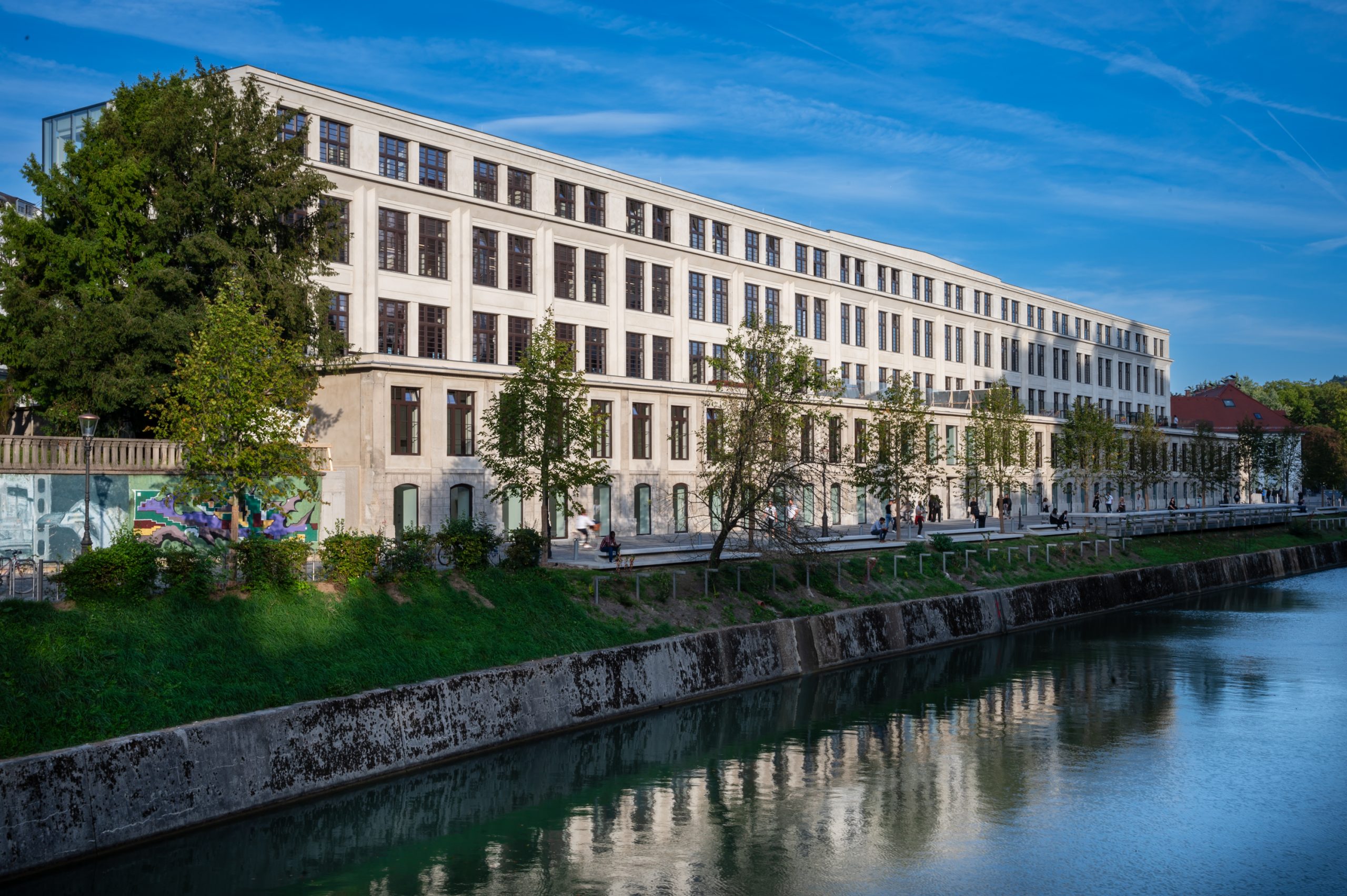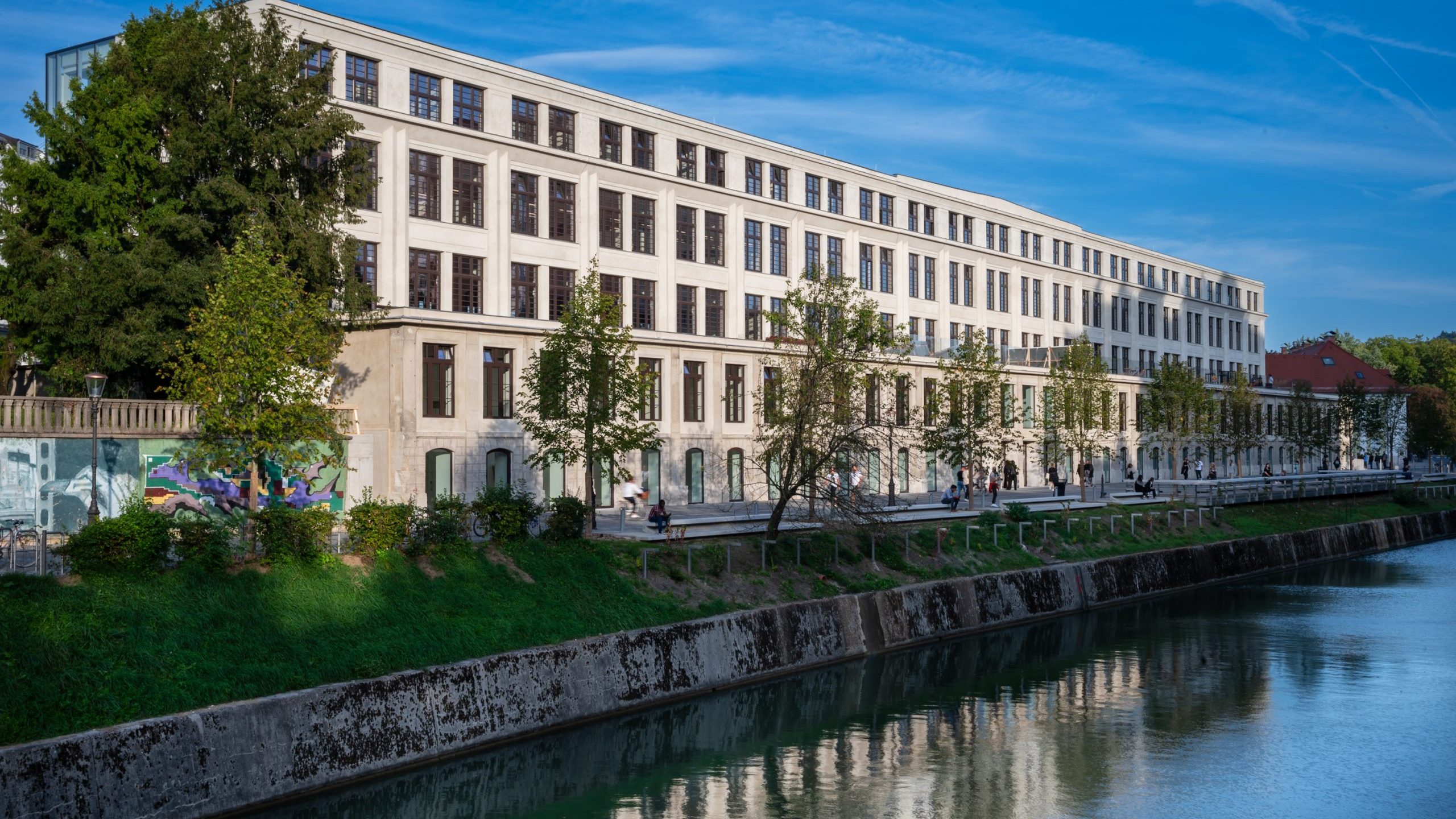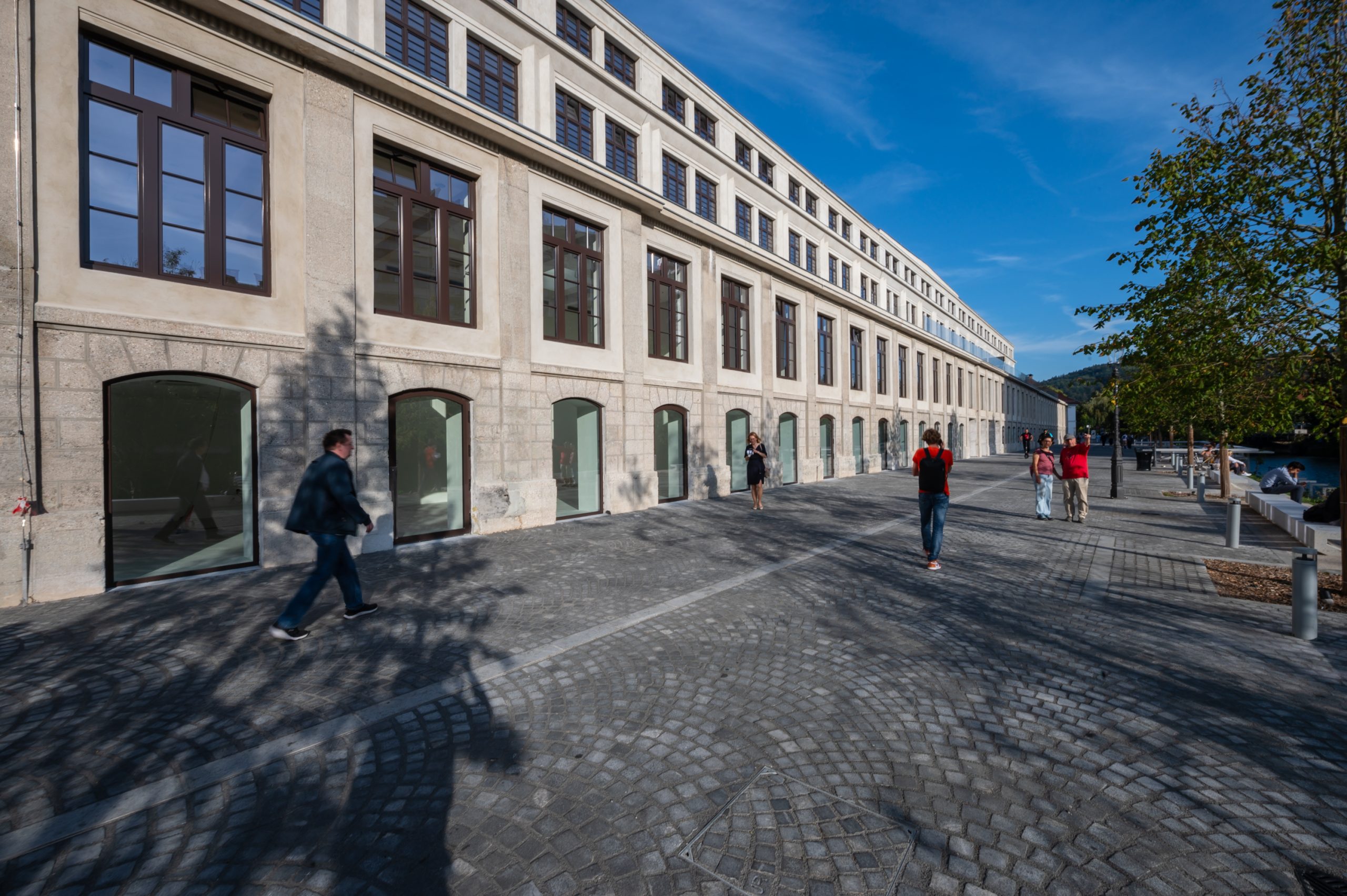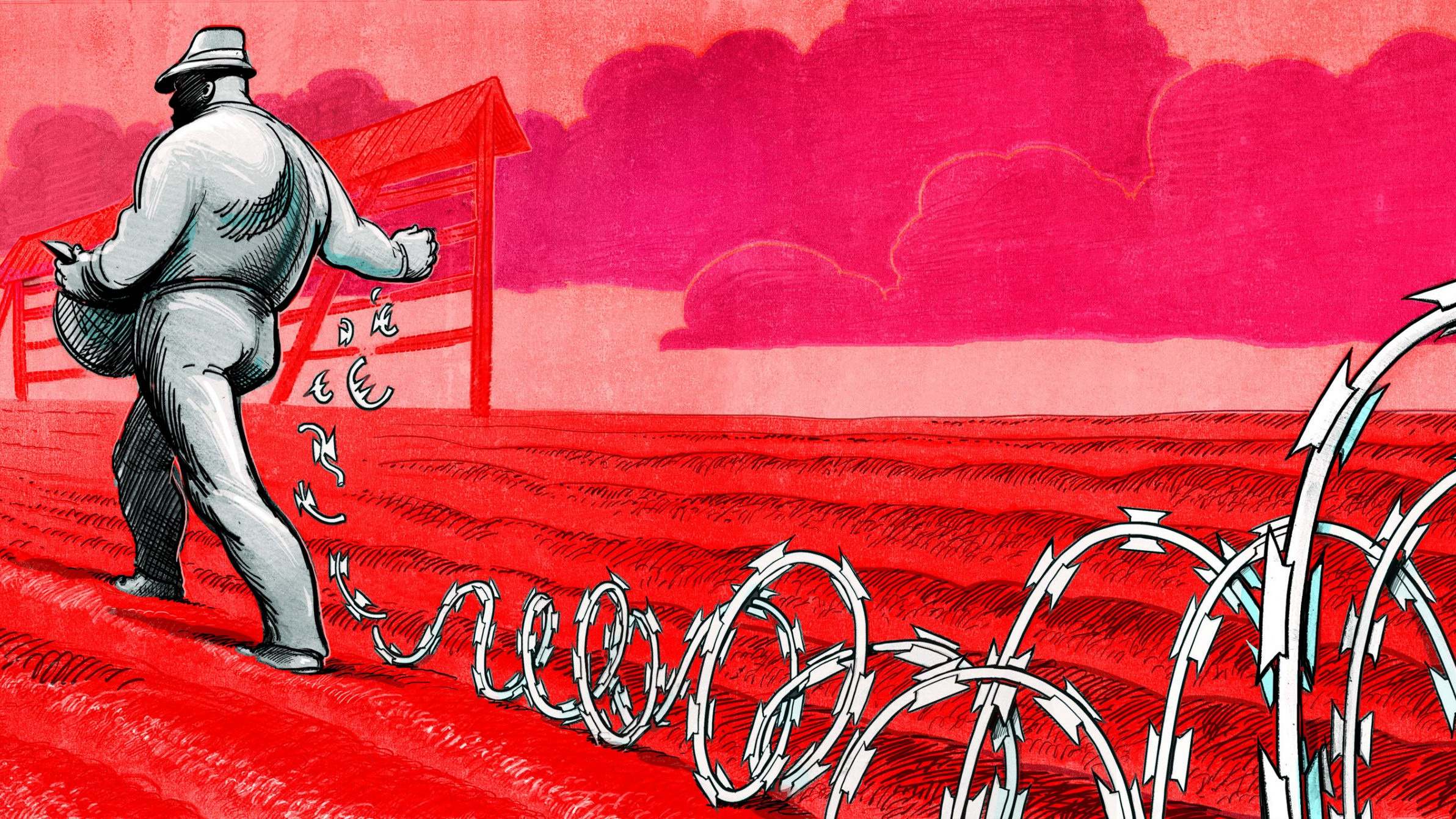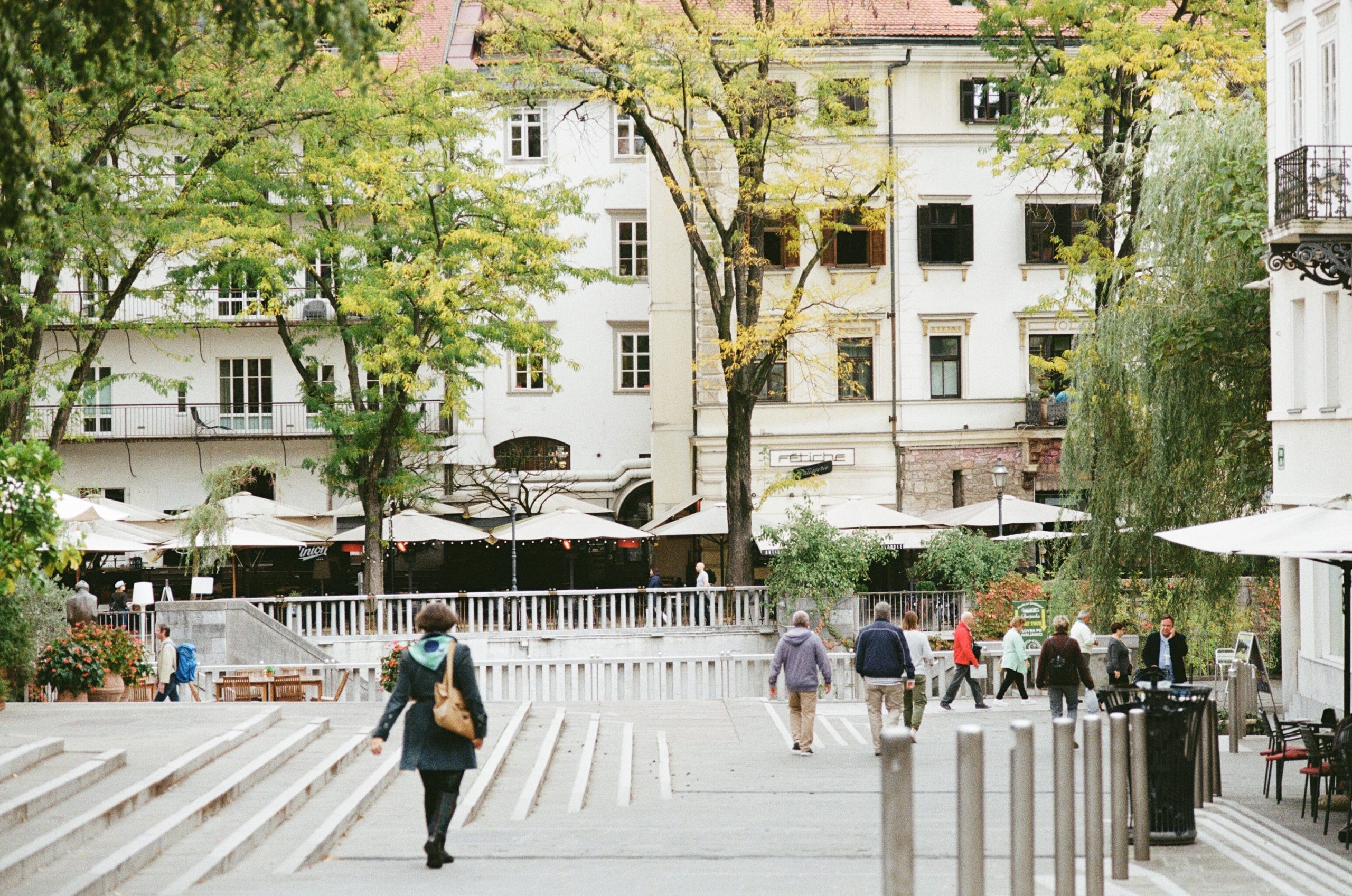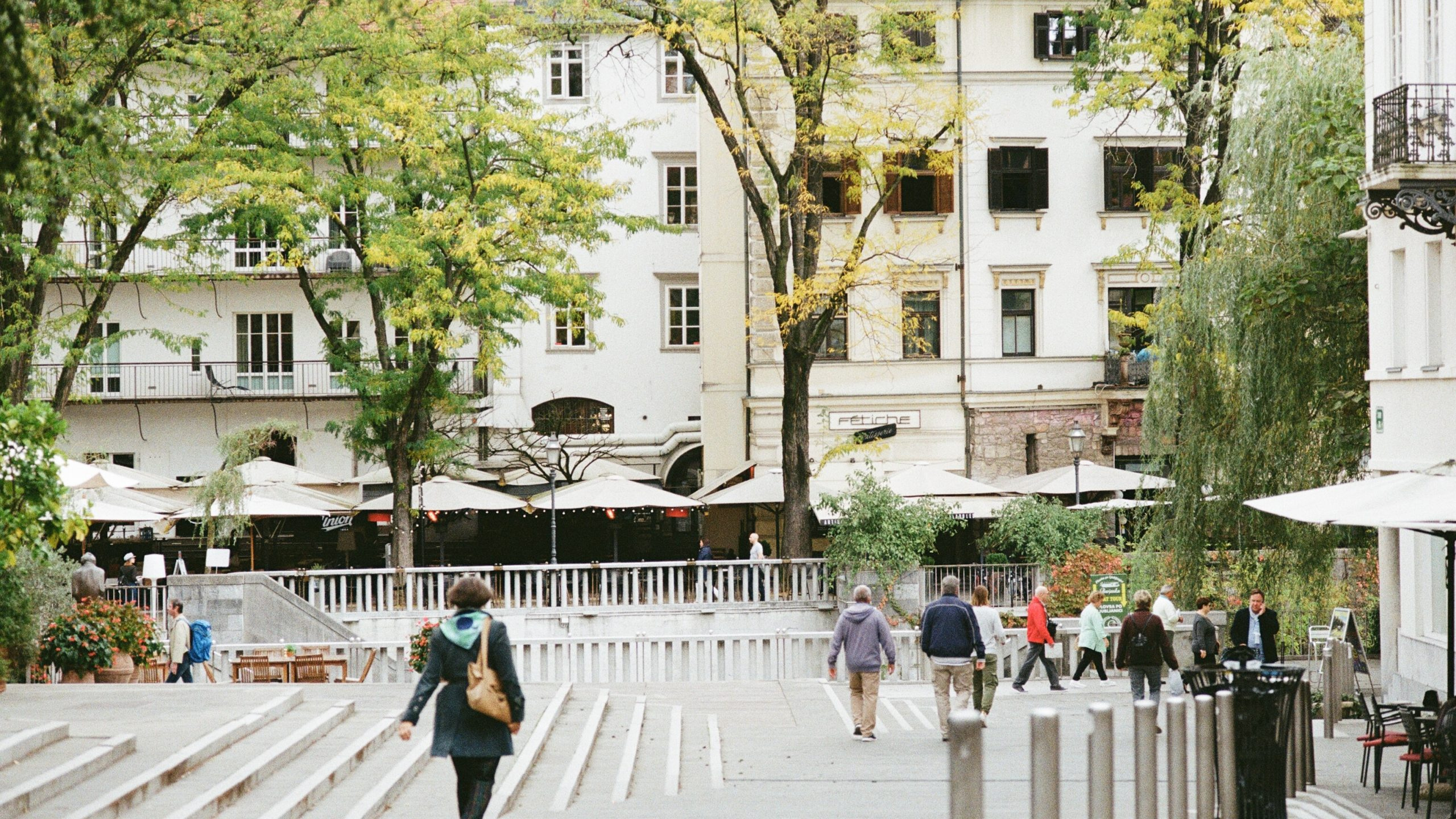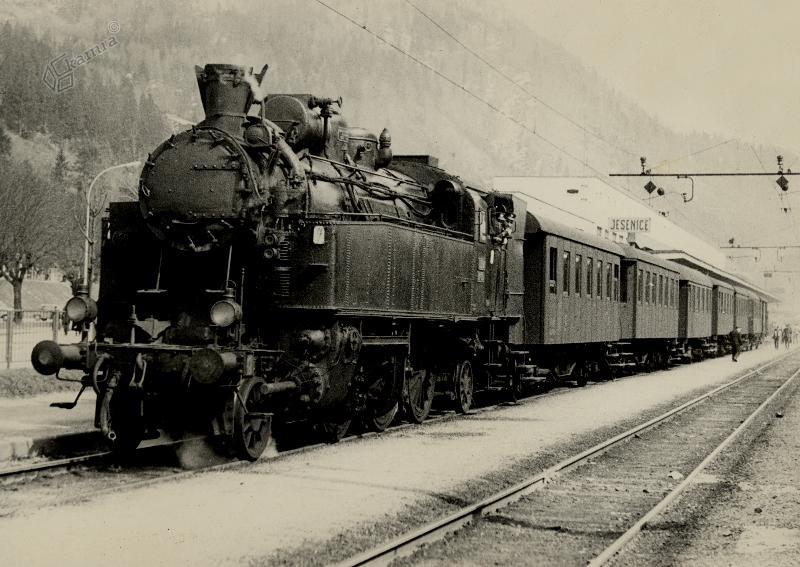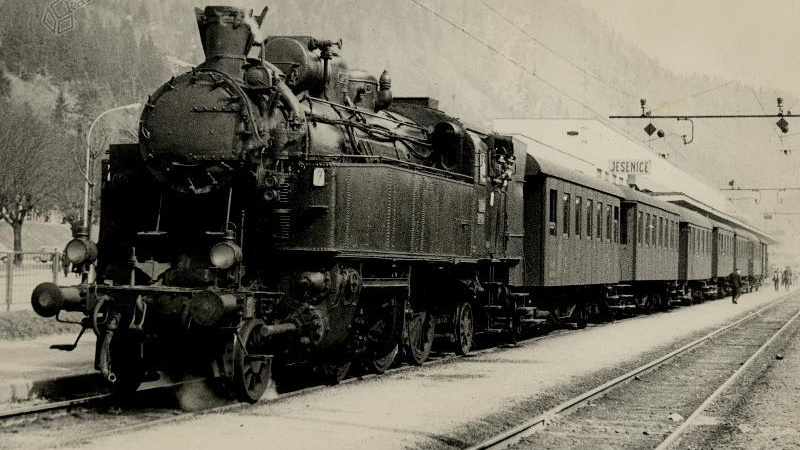Breathless in Ljubljana: Unveiling Air Quality Realities
Pollution
editor
By Alenka Žvikart
In the hustle and bustle of daily life, the air we breathe might not be getting the attention it deserves. The startling fact that the average adult inhales between 10,000 and 20,000 liters of air daily prompts us to question our vigilance towards air quality. With polluted air emerging as the foremost environmental risk, as many as 7 million lives are claimed globally each year due to its consequences. In the European Union, over 400,000 individuals succumb annually, with Slovenia witnessing the loss of 1,800 lives to pollution'sdetrimental effects.
Fierce competitor
Beyond the toll on human health, polluted air extracts a substantial economic cost. In 2020, healthcare expenses for treating conditions stemming from polluted air exceeded EUR 166 billion in the EU. Closer to home, healthcare costs related to air pollution for the residents of Ljubljana and Maribor surpassed 541 million euros in the same year.
Slovenia grapples with pollution primarily from motorised road traffic and stoves using wood biomass. Geographic factors, such as poor ventilation and temperature inversion, also contribute to the persistence of this issue.
The major air pollutants of concern are particulate matter (PM10 and PM2.5), nitrogen oxides (NOx), and ground-level ozone (O3).
Challenges and comparisons
While Ljubljana has seen an improvement in air quality over the years, the levels still hover at unhealthy thresholds. According to the World Health Organization, air quality is deemed good when PM2.5 measures less than ten micrograms per cubic meter. In 2021, Ljubljana reported a PM2.5 concentration of 16 micrograms per cubic meter, indicative of room for improvement. However, this is still notably cleaner than cities like Sarajevo, where PM2.5 concentration exceeds WHO guidelines by almost 16 times.
The Institute for Environment and Health in Slovenia recently undertook a comprehensive exploration into the air quality in Ljubljana. Focusing on measuring nitrogen dioxide (NO2), a prominent air pollutant generated primarily by road traffic, the campaign “Attention! Breathing is Dangerous Here!” unfolded in two phases. Initial measurements in February 2021 spanned 153 locations in Ljubljana, with a follow-up throughout the year at four locations identified with the poorest air quality. Those are: Drenikova street near GIB, Šmartinska street, intersection of Bleiweisova-Tržaška streets and Vošnjakova Street.
As the data unravels, it becomes evident that the battle for clean air is ongoing, and collective efforts are imperative to ensure the well-being of both the populace and the environment.
Serbian artist's masterpiece doubles estimate at Sotheby's auction
editor
By Maja Dragovic
The masterpiece Resting Bashi-Bazouk by the prominent Serbian artist Paja Jovanović was sold in November at the Sotheby's auction for more than twice the estimated price. This captivating oil painting was acquired by the Museum of the City of Belgrade for GBP 240,000, marking the museum's most significant addition to its art collection.
Jovanović’s Resting Bashi-Bazouk is a representation of his orientalist phase, showcasing exceptional attention to detail. The 19th century painting, created using the oil on board technique, realistically depicts a member of the Ottoman army in a moment of rest, dressed in a local costume – a white kilt and a red vest, with two bandoliers and a knife strapped to his belt.
Setting records
in 2018, another artwork by Jovanović was sold at Sotheby’s also exceeding the estimate by threefold. Bashi-bazouks before a Gateway was painted in 1887-88 and became the most expensive artwork sold by a Serbian artist.
Bashi-bazouks, irregular soldiers within the Ottoman army, were enlisted from the regions of Serbia and Albania during the time when these territories were under Ottoman rule. Funded and equipped by the government, they operated without regular pay, uniforms, or identifiable badges. Opting for their local attire, these soldiers were not formally trained for significant military campaigns but proved valuable for assignments like reconnaissance and outpost duties.
Jovanović, a prominent figure in Serbia’s art scene, studied at the Vienna Academy under Karl Leopold Müller. His patrons included King Alexander of Serbia, and his work was exgibited in Vienna, Munich, and Berlin.
Do sredine stoletja se lahko naše življenje močno spremeni
editor
The Adriatic
Ogrevanje ozračja, ki ga povzročajo emisije toplogrednih plinov, ni nepreklicen proces. Lahko ga ustavimo. A če ne bomo ukrepali, bo zaradi pretoplih zim smučanje izginilo na številnih območjih, naše življenje pa se lahko bistveno spremeni, pravi slovenski klimatolog Renato Bertalanič z Agencije RS za okolje.
Na prihodnje temperature bo vplivalo veliko dejavnikov. Vzrok vročinskih valov in temperaturnih ekstremov zadnjih desetletij je v človekovem delovanju, pojasnjuje Bertalanič in razlaga, kako poteka proces segrevanja: »Ozračje se segreva po vsem svetu, glavni krivec za hitro segrevanje pa je človeštvo s svojimi emisijami toplogrednih plinov, predvsem ogljikovega dioksida, pa tudi metana, didušikovega oksida in drugih plinov. Izpust teh plinov povzroča učinek tople grede: ko Sončevi žarki zadenejo Zemljino površje, ga segrejejo, površje pa del te energije kot toplotno sevanje odda nazaj v vesolje. Toplogredni plini povzročajo, da ozračje absorbira več tega sevanja, kar vodi v njegovo segrevanje. Posledično postajajo vsi vročinski ekstremi intenzivnejši, povečuje se število vročinskih valov, nastajajo višje temperature, pojavlja se več vročih dni, število tropskih noči narašča. Vedno več je temperaturnih rekordov, ne le poleti, ampak tudi pozimi. Hkrati pa je vse manj hladnih ekstremov. V zadnjih desetletjih se je povprečna letna temperatura v Sloveniji zvišala za približno 0,4 °C na desetletje.«
Vrnitev nazaj v preteklost
Na vprašanje, ali je mogoče globalno segrevanje ustaviti, Bertalanič odgovarja, da je to mogoče, saj je proces segrevanja povraten. »Proces je povezan s koncentracijo toplogrednih plinov v ozračju. Če ustavimo povečanje koncentracije toplogrednih plinov, lahko ustavimo globalno segrevanje. Če bi takoj prenehali z vsemi emisijami toplogrednih plinov in bi njihova koncentracija v ozračju ostala na sedanji ravni, bi temperatura zagotovo ostala na isti ravni več desetletij, morda celo stoletij. Ker pa v naravi obstajajo ponori ogljikovega dioksida, bi se koncentracija teh plinov sčasoma postopoma zmanjševala, kar bi privedlo do znižanja temperature v ozračju,« pojasnjuje Bertalanič.
»Obstaja optimističen scenarij,« dodaja. »Če bi človeštvo, na primer, aktivno zmanjševalo koncentracijo toplogrednih plinov, na primer z izločanjem ogljikovega dioksida iz ozračja, bi se povprečna temperatura začela zniževati. Toda nekateri procesi, kot sta dvigovanje morske gladine ter taljenje ledenikov in morskega ledu, bi se nadaljevali. Stoletja, celo tisočletja.«
Kombinacija okoliščin
Po besedah dr. Andreje Sušnik, agrometeorologinje, ki vodi Oddelek za meteorološko podporo kmetijstvu na Agenciji RS za okolje, so podnebni scenariji, ki so jih simulirali in analizirali, zaskrbljujoči. Simulacije kažejo spremembe v padavinah in temperaturi zraka ter poudarjajo trend naraščanja meteoroloških dejavnikov. Čeprav so scenariji še negotovi, so soglasni v eni smeri – temperature v Sloveniji bodo še naprej naraščale.
Bertalanič se izogiba napovedim prihodnjih temperatur zaradi prevelikega števila dejavnikov, ki vplivajo na globalno segrevanje. Opozarja pa, da so bile temperature nad 40 °C v Sloveniji zabeležene v Vipavski dolini poleti 2017, pred tem pa avgusta 2013 v Ljubljani, Cerkljah ob Krki, Črnomlju, Mariboru in Murski Soboti.
»Težko je napovedati, kje bo morebiten vrh v tem desetletju. Statistično se ozračje segreva: meseci postajajo toplejši, vsi štirje letni časi postajajo toplejši, povprečna letna temperatura pa narašča. Globalno segrevanje bistveno prispeva k temperaturnim rekordom, vendar obstajajo še drugi dejavniki, ki prispevajo k ekstremni vročini. Suša in suha tla sta neizogibno eden od njih. Za res izjemne temperature je potrebna kombinacija okoliščin, segrevanje pa je le ena izmed njih.«
Vpliv na ljudi
Projekcije kažejo, da bi se slovensko ozračje lahko do sredine stoletja segrelo za dodatnih 0,8 °C do 1,8 °C, pravi Bertalanič. To bi povečalo vpliv vročinskih ekstremov na različne vidike življenja. Eden od kazalnikov za merjenje teh sprememb je na primer število vročih dni – tistih z nad 30 °C. Tropske noči pa so opredeljene kot tiste, pri katerih temperatura ne pade pod 20 °C.
»Število vročih dni in noči negativno vpliva na ljudi. Nekaj teh dni in noči lahko prenesemo, a povečanje njihovega števila predstavlja težavo,« poudarja klimatolog. »V takšnih nočeh se telo ne more ohladiti, zato se ne spočije. Če bo takšnih noči več, bodo nastopile težave,« opozarja klimatolog.
Projekcije kažejo na morebitno podvojitev takšnih noči v Ljubljani na deset do leta 2040. Podobno velja za vroče dni, ki jih ima Ljubljana trenutno povprečno 25. Do leta 2040 naj bi se to število povečalo za pet ali deset, do sredine stoletja (2041–2070) pa na mesec dni. Posledično bodo ljudje vse težje prenašali vroče dni, saj bo manj hladnejših obdobij, ko bi se lahko spočili, pravi Bertalanič.
Pogled mladih
Dostopnost izobraževanja in informacij, predvsem na družbenih omrežjih, igra ključno vlogo pri oblikovanju generacije, ki je ne le bolj informirana o podnebnih vprašanjih, temveč zaradi njih tudi globoko zaskrbljena in v njihovo spremljanje dejavno vključena. To je povzročilo očiten generacijski razkorak v odnosih in ukrepih glede podnebnih sprememb. Natali Buli, 18-letna srednješolka iz Albanije, opaža: »Starejše generacije podnebnih sprememb ne razumejo tako dobro kot mladi. Starejši ljudje v Albaniji se večinoma osredotočajo na težave, s katerimi so soočene neposredno, namesto na vprašanja, ki bodo vplivala na naše življenje čez nekaj let.«
Nujnost podnebnega ukrepanja še dodatno spodbuja zaskrbljenost mladih glede njihove prihodnosti. Matic Hrabar, 19-letni študent biotehnologije iz Slovenije, poudarja: »Na dolgi rok bodo mlajše generacije veliko bolj prizadete. Mi smo tisti, ki dedujemo ta svet od starejših generacij, in mi bomo tisti, ki bomo naslednja desetletja živeli s podnebnimi spremembami.« Podobno Ilma Šahinović, 25-letnica iz Bosne in Hercegovine, izpostavlja potrebo po odpravi napak prejšnjih generacij, medtem ko Ivana Blažin, študentka tretjega letnika inženirskega menedžmenta iz Srbije opozarja na različne vplive podnebnih sprememb na mlade, kot sta slabšanje kakovosti zraka in vode.
Val optimizma
Kljub tem izzivom med mladimi vlada val optimizma in vizija alternativne prihodnosti. Predstavljajo si svet, kjer so njihove potrebe zadovoljene in njihova življenja niso ogrožena zaradi podnebnih sprememb. Ta vizija je sprožila izjemno globalno mobilizacijo mladih, tudi na Zahodnem Balkanu, ki se borijo za svojo prihodnost.
»Mladi smo tisti, ki zahtevamo spremembe,« pravi Buli in poudarja pomen pobude. Jovan Spasovski, 19-letni študent medicine iz Severne Makedonije, temi pritrjuje in motivacijo najde v posledicah neukrepanja.
Pomembno je priznati, da mladi niso le prihodnost, temveč tudi sedanjost. Njihove glasove je treba slišati, podpreti in priznati, če želimo učinkovito nasloviti podnebno krizo. Hrabar ganljivo zaključuje: »Kar me motivira, da še naprej zahtevam podnebno pravičnost, je to, da bomo lahko nekega dne otrokom povedali, da smo se borili … Da smo dali vse od sebe, da bi jih ustavili.«
A Cinematic metamorphosis from death to life
editor
By Alenka Žvikart
Following its premiere in Locarno and Sarajevo, last week Dragan Bjelogrlic's historical drama Guardians of the Formula, has opened LIFFe film festival in Ljubljana. It has won first place at the Sarajevo film festival and received both Pardo Verde Ricola and Variety Piazza Grande at the prestigious Locarno film festival.
The Serbian acting and directing maestro has starred in 92 films, many of which he masterfully guided behind the camera. But this project was one of the hardest, he said.
“This was the most challenging film, by far the most challenging one I’ve undertaken; it took seven years to make,” said Bjelogrlić.
In this latest endeavor, he artfully delves into poignant themes of mortality, malady, the Cold War, and the intricacies of human nature itself. In the absorbing drama Guardians of the Formula«, Bjelogrlic transports audiences to 1958 France and Yugoslavia, unfolding a narrative around a Belgrade nuclear reactor leak. The film’s core explores the relationships among four nuclear researchers treated by Professor Georges Mathe, played by Alexis Manenti of “Les Miserables” fame, the winner of the Cannes Film Festival in 2019 and a French nominee for an Oscar.
As the narrative alternates between events leading to the Belgrade contamination and subsequent treatments in Paris, the film delves into the friendships and romances blossoming amidst adversity.
The ensemble cast, led by Manenti and Radivoje ’Raša’ Bukvić, skillfully portrays the ideological divide bridged by respectful common ground. Despite attempts to infuse Hollywood drama, moments of heavy-handedness are balanced by Manenti’s restrained yet powerful performance. His portrayal of Professor Mathe, a morally-minded figure of the Resistance, serves as a prism illuminating the intricate ideological currents of the Cold War.
Alongside theirs are also performances by the Slovenian actor Jurij Drevenšek in the role of UDBA agent, Dragan Bjelogrlić (portraying UDBA chief Aleksandar Ranković), Predrag Miki Manojlović, Lionel Abelanski, Ognjen Mićović, Anne Serra, Jérémie Laheurte, and others.
A regional collaboration in the truest sense, the film is a co-production between Serbia, Slovenia, Montenegro, and North Macedonia. Slovenia is prominently present in this film, both through the Drevenšek’s significant role and as a key film location: parts of the movie were filmed in the reactor of the Jožef Stefan Institute and other locations in Ljubljana and Škofja Loka.
LIFFe film festival is on until 19 November 2023.
Shaping the future of digital leadership
Digital Transformation
editor
By Maja Dragovic
In a momentous development set to revolutionise the fields of digital leadership and artificial intelligence (AI), the Bled Institute for Leadership in Digital Transformation and Artificial Intelligence (BILDAI) has officially been established. This endeavor is the result of a strategic alliance between IEDC - School of Business Bled and Roche Slovenia, promising significant advancements in technology and leadership.
Prof. Danica Purg, the director of IEDC – School of Business Bled, and Eva McLellan, the general manager of Roche Slovenia, both emphasized the tremendous potential that lies ahead by combining their resources, expertise, and knowledge.
“We are extremely excited about collaborating with Roche Slovenia. We believe that by combining our joint efforts, expertise, and knowledge, we can truly deepen and strengthen the understanding of digital transformation and artificial intelligence on a global level,” said Prof. Purg, underlining the significance of the partnership.
“This is an important moment for IEDC, Roche Slovenia, and the entire community engaged in digital transformation and artificial intelligence.”
Ready for AI
Eva McLellan is convinced that Slovenia, with its knowledge, is just the right size for pilot projects related to leadership, artificial intelligence, and digitalization. She highlighted Roche’s competence in this area: in 2023, it was recognised as the best pharmaceutical company in terms of readiness for artificial intelligence. “Our social responsibility is to contribute with our knowledge in areas where we are experts and leaders. Therefore, we invest in building data infrastructure and in the development of leaders who are qualified to face challenges related to artificial intelligence,” she emphasized and stressed the role of ethics and integrity in leaders. Without these, there is no public trust, and without trust, there is no business, she stressed. IEDC is built on these values, and in Roche, they see an opportunity for Slovenia to become an efficient international hub for artificial intelligence.
This collaboration is expected to deepen and strengthen the understanding of digital transformation and artificial intelligence on a global scale. BILDAI is not just a theoretical concept; it is set to become a central hub for research, education, and innovation in the field of digitalization and artificial intelligence. Its long-term goals encompass the development and design of new educational programs and research projects. Among these initiatives is the creation of a cutting-edge MBA program, “Management of Science and Technologies.”
Additionally, BILDAI will host an annual conference and various symposiums, providing a platform for experts to share their insights and advancements.
Key pillar
The institute will operate in many areas, with healthcare being one of the key pillars. Healthcare has a strong synergistic effect that goes beyond its primary function, as it lays a solid foundation for the advancement and well-being of society as a whole. It acts as a catalyst for the progress of not only physical health but also the social, economic, and educational structures of society.
“In its work, Roche focuses on advancing science to improve people’s lives. As the needs in healthcare systems increase and become more complex, we are aware of the role that artificial intelligence will play in addressing modern challenges. At Roche, we believe that with such strategic partnerships and co-creation, we can provide significantly greater value to society. However, as digitalization requires a profound shift in mindset and a readiness for continuous learning and experimentation, the new institute will also focus on leadership in digitalization,” emphasized McLellan.
Digitalization demands a fundamental shift in mindset and a readiness for continuous learning and experimentation. BILDAI aims to address this by focusing on leadership in digitalization, preparing individuals and organizations to thrive in the digital era.
In the next steps, BILDAI institute will establish its governing bodies and forge partnerships with numerous companies, government entities, and private organizations. This collaborative effort will serve as a cornerstone for driving advancements in digital transformation and artificial intelligence in Slovenia and beyond.
Centre Rog: An Urban Renaissance
editor
THE ADRIATIC TEAM
Photos by: Centre Rog
On the 26 October, at the far end of the Petkovškovo embankment in Ljubljana, where reverberations of the city's historic Trubar street meld with the contemporary urban scene, the iconic Centre Rog has opened its doors once more - a reincarnation that holds the promise of a creative renaissance. Amidst a global era of digitalisation and increasingly superficial interactions, it emerges as a haven for tangible craftsmanship and genuine human connection.
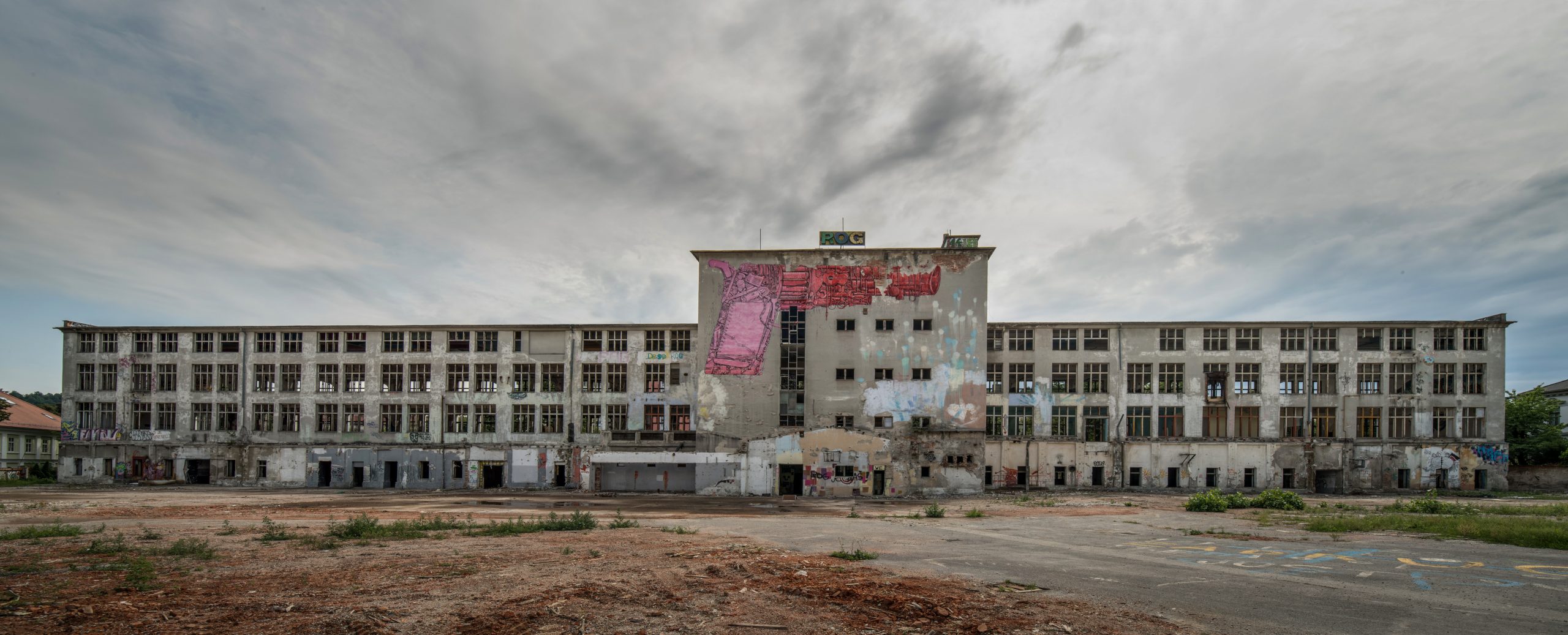
The centre, encapsulated in sturdy yet charming industrial aesthetics, is more than a building; it’s a living testament to Ljubljana’s artistic spirit and its pursuit of enabling a community-centrered workshop for its inhabitants. At the core of this urban oasis will be a collection of nine labs , each serving to fulfill the needs of students from the various faculties of the University of Ljubljana and the creative endeavours of the public, helping shape ideas into reality. Whether it’s metalworking, ceramics, textiles, or 3D printing and laser workshops, there’s a niche for every craftsman that allows their imagination to roam.
Its philosophy of ‘do-it-yourself’ extends an invitation to students, the unemployed, retirees, and asylum seekers, amongst others. With a membership fee as nominal as €15, or €10 for the aforementioned groups, the centre will ensure that the tools and space for creation are within reach for all. Members have the liberty to choose from three different user packages, each tailored for a person’s needs and capacities.
Like in the past, the present iteration of Rog endeavours to foster a diverse community where entrepreneurial and artistic visions meld together. The boutique in the ground floor will offer a variety of items for sale, handcrafted by the centre’s users.
Ascend through the connecting glass foyer, the first floor will house a library with 20,000 units of to choose from. Yet, it’s the specialized collection focusing on design, architecture, and other applied arts that sets it apart, not forgetting a children’s corner dedicated to the little ones.

Rog is a place where the day starts with the noise and whirr of machinery and ends with hearty laughter echoing through the halls. The centre’s restaurants and cafe aren’t just a place to satiate hunger, but a hub where ideas are exchanged over steaming cups of coffee and where the city’s denizens come together to celebrate the joy of making.
Master of Gallows Humour – Ciril Horjak
editor
Alenka Žvikart
JOURNALIST AT THE ADRIATIC
The first thing that might have attracted you to our magazine is the captivating front page. Last year's edition, for example, provides a polarising effect, chaos on one side and serenity on the other - geopolitics in a nutshell. The genius behind the illustration is Slovenian Carinthia's finest, Ciril Horjak.
Horjak was born in Slovenj Gradec, the city of peace, yet his illustrations are anything but peaceful. His witty use of gallows humour translated into comics enables him to tell a story in a matter of seconds, make a lasting impression on the reader and provoke critical thinking all at once. Horjak is a prolific creator working for the Saturday supplement of the Večer newspaper, to which he had contributed a whopping 1800 comics, which took 892 weeks to create in total. His admirable work ethic and a plentiful amount of art, also made among the more hidden areas such as charities and the dental industry, adorned Ciril Horjak with many awards. In 2010, he received an award from the Slovenian Institute for Adult Education and in 2016, he received an award from the Society of Slovenian Journalists.
Admire the art up close
The Gallery S in Ljubljana Castle currently holds an exhibition of newspaper sketches by Ciril Horjak titled Selection. The show portrays only about 2 per cent of Horjak’s vast opus, but the unique ‘rushed art’ style ties all the pieces together. Dr. Horowitz, the author’s creative alias, is always in a hurry to create comic strips so he can report on the current state of affairs as quickly and accurately as possible. “In a way, I’m delighted, joyful even, that the drawings can evoke various emotions, I can’t even imagine it,” says Horjak in an interview. The artist also adds that he usually creates his drawings in a dark cellar apartment, where he does not have a chance to discuss his work. He is consequently pleasantly surprised that the public took such a liking to his art. If you find yourself in Ljubljana in the next couple of weeks, don’t give the exhibition a miss, it is on only until November 5th.
Slovenia's Pioneering Path in Data-Driven Healthcare: A Global Blueprint?
Digital Transformation
editor
Barbara Matijašič
JOURNALIST AT THE ADRIATIC
In the era of digital transformation healthcare is changing swiftly, with patient expectations shaped by experiences in other sectors. Slovenia has set itself an ambitious goal to meet those expectations by 2027 with an e-health strategy that has placed the patient at the centre of the healthcare system.
Slovenia is in a good position to meet the goal, says Elina Drakvik, senior lead at Finnish Innovation Fund Sitra/TEHDAS.
»Slovenia was an early adopter of e-health and almost all health data is digitized«, she notes. »It is clear that Slovenia has made significant advances in accelerating and integrating the use of digital technologies in healthcare, and the Slovenian eHealth Strategy from 2022 identifies key issues for continuing this development and reaching towards excellence.”
The strategy involves reshaping processes, optimizing data use, enforcing robust governance, and ensuring inclusivity. It aspires to make eHealth one of the most efficient, user-focused, and sustainable digital health systems in the European Union. Some of it’s key objectives include:
Better health of the population: Ensure that healthcare initiatives and data-driven decisions lead to positive health outcomes.
Responsive, successful, and stable health system: Build a health system that can flexibly adapt to the evolving needs of the population, ensuring that healthcare services remain effective and reliable.
Higher user satisfaction: Improve satisfaction levels among those delivering and receiving health services.
Fairness in financial contribution: Ensure that access to quality healthcare services is fair and accessible to all.
Implementation is crucial
Successful implementation of digital technologies is, of course, crucial and involves various stakeholders playing vital roles, Drakvik remarks. She adds, however, that Slovenia’s e-health system has strong foundation to build on and can also support integrations with health systems beyond its borders.
“Slovenia has a well-developed health information system with a strong technical infrastructure to support the future implementation of the European Health Data Space«, Drakvik concludes.
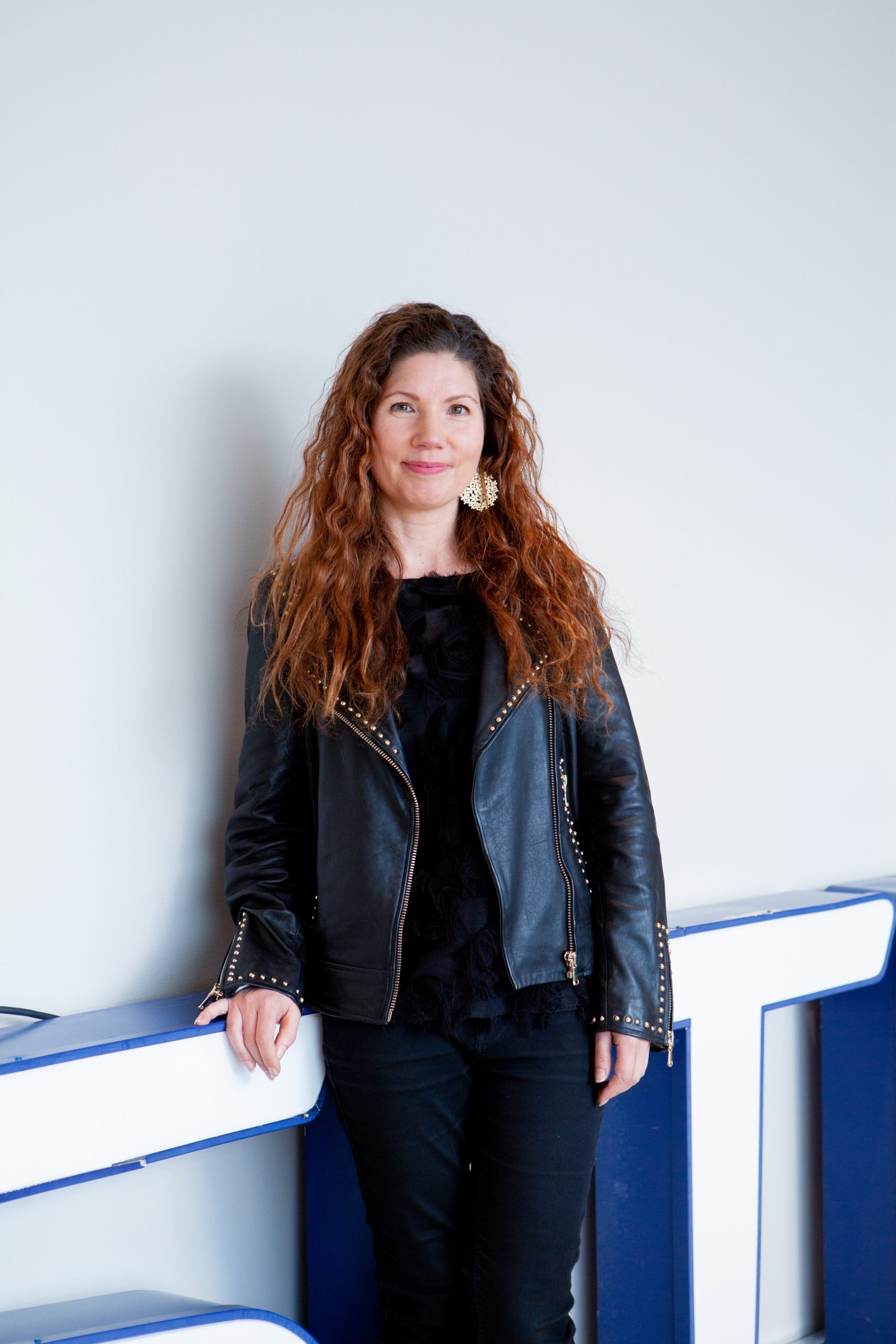
Global insights
Slovenia’s journey towards data-driven healthcare is part of a broader global movement. By learning from successful implementations worldwide and leveraging its strengths, Slovenia is poised to become an innovator in healthcare, offering improved outcomes, enhanced patient experiences, and an efficient and sustainable healthcare system for its citizens. Cases below1 serve as compelling evidence of the potential that lies ahead for the country, given its already promising trajectory in data management.
Over 180 countries have shared genomic sequences of COVID-19 variants on the GISAID platform. To date 2 million genomes have been catalogued. The platform is the most trusted for data sharing of COVID-19 genome data, with African and South American scientific contributions to the platform more than doubling between January – April 2021. Data has been used to assess vaccines and diagnostic medical devices.
Clinical trials data created using standardized data models and clear data governance processes such as creation of a data dictionary reduced the estimated costs of data sharing by 50% (from 3K to 2K in this study). You can find more information – here.
Researchers from the Behavioral Diabetes Institute and the Scripps Whittier Diabetes Institute examined caregivers’ experiences with real-time continuous glucose monitoring data sharing and its impact on quality of life and health outcomes for patients with type 1 diabetes. Most agreed that data sharing improved their quality of life by giving them peace of mind (88.4% parents; 87.7% partners), contributing to lowering their anxiety (84.8% parents; 86.3% partners), and helping them feel confident about their ability to help their child/partner (92.1% parents; 94.3% partners). You can find more information – here.
Green is the New Black
Fashion
editor
Alenka Žvikart
JOURNALIST AT THE ADRIATIC
The Green Capital. The Heart of Slovenia. A city that might sleep but never fails to recycle. In other words, Ljubljana. Ljubljana has ranked among one of the most sustainable cities in Europe and, on multiple occasions, earned the glamorous first place. And now the city is working hard to achieve a new goal: to be dressed to the nines – sustainably.
Fierce competitor
European capitals have always been prone to competing with one another – and sustainability is no exception. Ljubljana might be a small but fierce competitor. A green gem surrounded by nearby mountains, luscious greenery, drinkable water, 200 kilometres of cycling avenues, sophisticated architecture and a variety of eco-friendly shops is destined for success. Only one stroll through the city centre catches the eye of those with a passion for fashion and compassion for our planet. Second-hand stores are located on practically every corner, while the locals are not afraid to show off their vintage looks whilst strutting down the city’s many green carpets.
The Green Timeline
Ljubljana has become somewhat of a trendsetter when it comes to sustainability. In 2008, the city became the first capital to have an entirely car-free centre. In 2016, it was adorned with the title of the European Green Capital, given by the European Commission. In 2022, European Best Destinations and the distinguished Forbes magazine ranked Ljubljana first among Europe’s 20 Best Green Capitals.
Sustanable fashionistas
Ljubljana has already made unprecedented strides in eco-conscious urban development and commerce. But the domain currently experiencing rapid growth and innovation is sustainable fashion. With a growing customer base, many local and foreign businesses have begun to thrive. From second-hand shops to designer stores, they all have a common goal: fair trade and eco-friendly products. Original stores like Luci Clothing, Janja Videc, Nika Ravnik produce handmade and organic products for women that counteract fast fashion. Find the entire list of designers at this link.
Trains are the past and the future
Trains, the Environment and the Future
editor
Martin Pogačar, PhD
SPECIAL CONTRIBUTOR
Today trains are often seen as a means to alleviate the burden of travel on the environment. The worst culprits are flying and driving.
The primary motive may not always be related to environmental awareness but is rather pragmatic i.e trains mean shorter travelling time and less security control hassle. A journey from Munich to Berlin, for example, can take about four hours, during which time you can work, read or simply relax. However, travelling from Ljubljana to Nova Gorica, or abroad to Berlin, Vienna, or Budapest, is still a day-long adventure – or such is the popular myth!
Intercity train connectivity is indicative of not only geographical factors, but also economic and political decisions, or in many cases – non-decisions. For example, in the early 21st century, Slovenia was notoriously badly connected by railways, both nationally and internationally, as well as on a state level. There still seems to be little political understanding or comprehension of the increasing significance of the railways and their effects on travel and the environment. There appears to be a total lack of awareness that trains are the real future of travel – much more so than futuristic flying cars are!
The railway system and trains have a colourful history, amply represented in popular culture. A look at railways as represented in Yugoslavian documentaries can give us some perspective on post-war reconstruction, as well as on the relationship between people and the environment. And not least, they can encourage us to think about the state of the railways in Slovenia today.
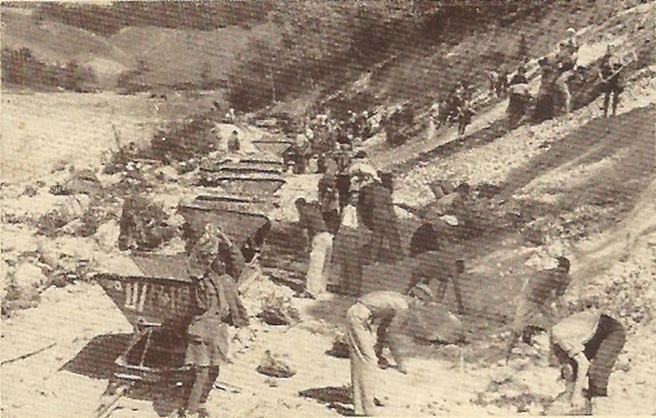
Railways first cut nad dug their way into Slovenia with the construction of the Vienna-Trieste line. The construction started in 1837 and the last leg was finished in 1857. It connected Vienna, the capital city of the Austro-Hungarian Empire with the port of Trieste, and was known as “The Southern line”. It grew to become a crucial link in the transport of goods and people alike. Over the decades, new branches connected people living in the vicinity of the railway with other parts of the empire; it also greatly facilitated trade and commerce and aided sprouting industries. The railway ignited imagination and travel on an unprecedented scale.
The machine, which Karl Marx described as the technical equivalent of revolution and gistorical progress when he said, “revolutions are the locomotives of history”. They harnessed the power of steam, fossil fuels and later, electricity. However, the railway also created ambiguity. Walter Benjamin (German Jewish Philosopher, 1892-1940) observed changes in the very composition of interpersonal relationships, stating that the railway represents “the first vehicle that creates and shapes the masses, whilst at the same time, a train ride allowed people to observe the faces of others close up, and in silence”. On the other hand, the historian, Wolfgang Schivelbusch, in The Railway Journey, emphasises the role of the train in the shifting human perceptions of the world which started in the 19th century and continues to this day. Ultimately, it was the railroad that contracted the world, caused the deaths of thousands in construction, and during WWII provided the lethal infrastructure for the industrial-scale mass murder perpetrated by the Nazis.
The train and the railway, the machine and the infrastructure thus epitomise the post-Enlightenment rationalisation, the march of science and the industrial revolution. They are a sign of progress and oppression, life and death, opportunity and destruction. The train represents a radical break in the ways people relate to each other and how they see and understand the world.
In this context, the Yugoslav post-war reconstruction may offer some insight into how the emerging socialist state, straddled between death and ruin in the aftermath of WWII, constructed the railways in 1945. It was seen as an industrial and symbolic part of the ideological push to not only reconstruct the country but also to create a future for the new socialist man. This is portrayed particularly well in newsreels and documentaries.
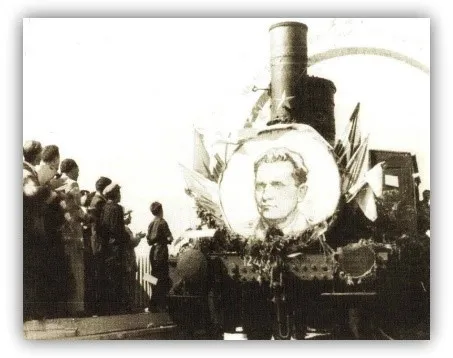
The 1972 documentary Diverzije na železničke objekte (Railway Object Sabotage, Zvonimir Saksida) presents some statistics about wartime railway infrastructure destruction. In the period 1941-1945, 1799 km of railroads, 830 railway stations, 2122 bridges, 90 tunnels, 1200 locomotives and 12,000 train cars were destroyed in the former Yugoslavia. This toll of destruction was caused by the occupation forces, resistance sabotage, and allied bombing, and was added to other infrastructural damage in a predominantly agrarian country. The human loss was enormous, nearly 600,000 people died, while, as in any war, the psychosocial damage to the survivors is much harder to measure. Before WWII, the former Yugoslavia was only sparsely industrialised.
In the immediate post-war years, socialist Yugoslavia ran a severely damaged railway infrastructure. It was grafted onto an inherited railway system which before the war was mostly concentrated in Slovenia, northern Croatia, Serbia and Vojvodina, with very few connections to Bosnia. This was the consequence of the fact that from early on up until World War II, the railway was attuned to the economic-political ambitions of the Austro-Hungarian (Slovenia, Croatia, parts of Bosnia) and the Ottoman Empires. Therefore, after the liberation in 1945, the new Yugoslavia was confronted not only with ravaged and almost non-existent railways but with an existing network more attuned to Vienna, Budapest or Istanbul as was noted by the Slovenian historian, Anton Melik.
In addition, the post-war situation was marked by large numbers of injured and traumatised people, who had emerged from the war without much formal education. However, this was to some extent alleviated by the fact that resistance units also had cultural sections that oversaw cultural activities as a critically important part of socialist ideology. This included theatre and poetry, as well as practical political and ideological education. E.P. Thompson, a British historian, took part in the international shock-worker (udarniks) brigades in 1947, namely the Šamac-Sarajevo construction site. He wrote the following in his edited volume The Railway: An Adventure in Construction.
A great part of the pre-war educated class had been killed in the war or had been discredited by collaboration with the enemy. Men of forty, fifty and over were performing miracles of self-education, but the bulk of the teachers, technicians and professional men of the future had to be found among the students and young workers of 1945. Some had walked out of their schools at the age of fifteen and gone to the forests, not to return for four or five years. Others had sment two or three years as prisoners in concentration or slave labour camps. The problems of psychological readjustment were considerable. Like many other Europeans, they had grown up in isolation from the cultural and intellectual life of other nations. Even the raw materials of education – the textbooks, libraries, instruments, schools and laboratories – were in short supply.
The ambition of the post-war socialist government was not only to (re)build the railways, but the infrastructure at large. The government also placed a great emphasis on the public education system and health care. These were seen as the conditions for the (re)construction of the material as well as the symbolic.
At this point, the railway became a more-than-material entity – a phenomenon that sublimated a wide variety of expectations and ambitions, dreams and an idea of the future. This was embedded in the brigade workers moto: “We build the railway, the railway builds us!” that connected the human with the future and the material with the symbolic. Implicity, it connected humans to nature through labour.
The railway construction work represented a radical intervention with nature, which, especially in a context of material scarcity and poor mechanisation, required a lot of manual labour with sub-optimal tools.
The workers had compressors and drilly, dynamite, wagons, and mining equipment. But most of the work took place without professional supervision and only the most primitive tools were used – bare hands, picks, axes, heavy wheelchairs with one wheel.
The 1947 film Omladinska pruga Šamac-Sarajevo (Sarajevo Youth Railway, Slobodan Jovičić) presents the results of months worth of the shock brigades work. The film focussed on the shock brigades who constructed the railway from the town of Šamac to Sarajevo in Bosnia. The film starts with maps and statistics: the length of the tracks, the number of construction workers (211,000 domestic and 4,000 foreign), the number of tunnels dug and bridges constructed, the amount of dirt moved (5,5 million metric tons) and concrete used (1.9 million metric tons). These are considerable numbers that in the modernist manner of keeping statistics tell of the human engagement with the earth and rock using sprades to dig and hands to tighten the screws.
The film narration describing the work is intercut with shots of waving flags, which is accompanied by ochestral music. Upon the arrival of the train to Sarajevo bringing in shock workers to a city flooded with people, the narrator states – “A new life is celebrated, a broad path to a happy future”.
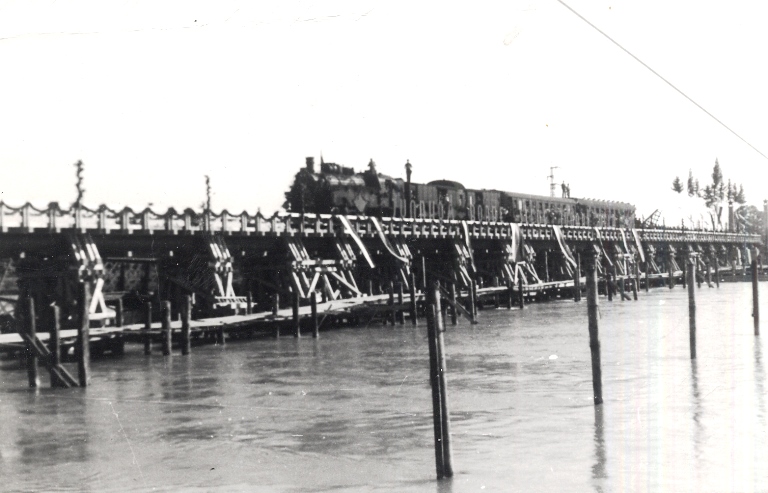
These scenes are interspersed with the scenes of the train ride across the countryside. Here, nature is the background, the scenes include the tracks, the tunnels, the bridges, and the laying out of tracks into the future. It is also an actor that observes and gives way to the construction of the new march of progress to steam and steel. “Enabling fast and cheap transport, a wide gauge railway enabled the opening of new forest construction sites, where today a persistent struggle for high productivity ensues”, the voiceover explains.
This alludes to the imperialist approach to the construction of nature – only when nature is mastered can it be exploited. Thus, the whole (re)construction enterprise was inscribed into the processes of modernisation into the processes of modernisation and industrialisation in which the machine figured prominently as an extension of humans overcoming themselves. Yugoslavian writer, Ivo Andrić, wrote: “When these efforts of mature people and experts are joined by the already known work enthusiasm of the youth, the real struggle begins with the struggle against the forces of nature, the struggle with the mistakes of the past, and the struggle against prejudice”.
Thus, it was not only the railway that was constructed. Anthropologist, Andrea Matošević, notes, “The opposition [of man in nature] is realized by a radical change in nature that is reflected in two ways – as a significant transformation of its morphology, but also as gaining the experience necessary for active transformation, and thus creating the new socialist man”.
The narrator in the Memories from the Tracks, (Uspomene s pruge), Hajrudin Krvavec, 1952) documentary, explains this concept against shots of trains driving through the land, crossing bridges, workers pushing cartwheels and shovelling, shots of explosions and workers singing. He says in an uplifting tone. “Again, the explosions in the valley of Bosnia mark the beginning of the construction of a new youth railway. Again, the silence of the landscape will be pierced by the songs of youth”.
The relationship between nature and humans here is crucial in terms of recontruction, as it involves labour, one of the ideological tenets of socialist Yugoslavia as a country of the working people, with the main means of engaging with the land. In line with the workers motto, “We build the railway, the railway builds us”, it presupposes a struggle with nature, reframing it as a condition of human progress, which also defines the construction of the new society, as the author in a 1948 book Sto godina železnica Jugoslavije noted: “On this Youth railway, the alliance between our working class, the working peasantry and the intelligentsia was deepened and further strengthened”.
This is coupled with some Slovenian newsreels showing images of railway construction and students enrolling in courses at the Faculty of Medicine, indicating the value and the societal need for both, not least because health is a necessary condition for an efficient workforce. What is more, a newsreel from 1946 shows children reading, clearly delivering the message about the importance of education and literacy for the construction and reconstruction of society.
In a somewhat younger documentary in 1954 Ljudi i čelik (Humans and Steel, Slobodan Jovičić), the relationship between humans, technology, and nature is shown in a somewhat different manner. The film depicts the transformation of the Bosnian town of Zenica, from a small ironworks hamlet into an industrialised socialist city. “A street appears here, a new factory there,” says the narrator, “every day, the traces of the old disappear”. These words are spoken against shots of old, derelict houses and new modernist blocks of flats, with tall chimneys and factory halls rising in the background. We see workers casting iron in heat and hear the deafening noise of hammers pouding steel – “the steel heart of our homeland”.
We also see President Tito addressing the shock workers arriving in Sarajevo in 1947, “You have shown to the entire world that Yugoslavia is the land of peace, that it is hard-working, and it is constructing. But remember now it’s time to learn and then it will be time to work. You need to learn what will enable you tomorrow to even better serve your homeland”. The scenes of hard-working women and men are interspersed with shots of lakes and forests, of cities at night with people going to the cinema or theatre. The new socialist man must also rest. And the viewer is then taken back again to see the night shift at the steelworks. The urgency of post-war reconstruction had transformed into everyday rhythms of life in peace.
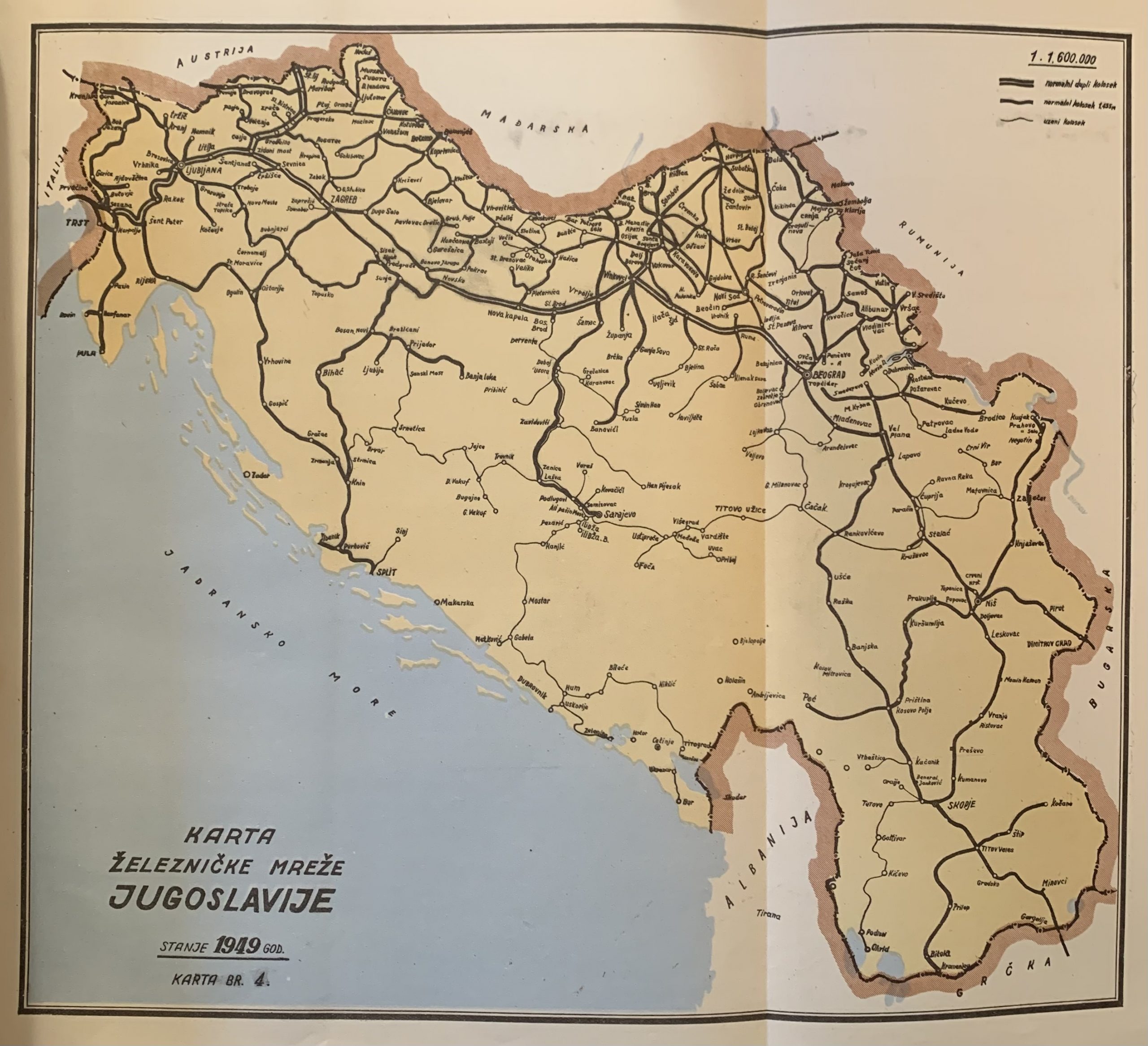
The documentaries reflect the drive to rebuild their war-torn homeland, which is in line with the modernist conception of progress that marked the post-war idea of a better future in both the soclaist east and capitalist west. It shows the very strong push to frame the human, nature and technology in the context of an ideology of reconstruction and progress. For a long while, Yugoslavian railroads also presented an infrastructure of brotherhood and unity and were the main transportation system that shifted goods and people across the land and beyond; and it remained so until the ideology of the car and individualised travel took over, resulting in disinvestment and the closing down of lines.
From today’s perspective, socialist Yugoslavia’s feat in construction unfolded in very specific geopolitical and historical conditions. They just might provide an idea that large-scale constructions, if their importance is acknowledged, do not need to take decades to construct. For at least 30 years it has been clear that the railway is the future of mass mobility, therefore it is all the more shocking that the state of Slovenia lacks any strategy on how to revive and improve its railway system and connect it beyond its borders. If the ride from Berlin to Munich takes just over four hours, why does the ride from Ljubljana to Nova Gorica take three?
THE ADRIATIC
This article was originally published in The Adriatic Journal: Strategic Foresight 2023.
If you want a copy, please contact us at info@adriaticjournal.com.

